Submitted by WA Contents
TAO completes concrete bookstore with protruding structure on a steep slope in China
China Architecture News - Oct 29, 2024 - 14:54 2640 views

Beijing-based architecture practice TAO (Trace Architecture Office) has completed a concrete bookstore made of a protruding structure on a steep slope in Nujiang Prefecture, China.
Named Nujiang Grand Canyon Bookstore of Librairie Avant-Garde, the 637-square-metre building is situated on a plot of land in the southern Nujiang province's capital, Lushui.
The city, which is surrounded by the Biluo and Gaoligong Mountains, is the starting point of Avant-Garde's upstream trip along the river and the southern entrance to the Nujiang Canyon.
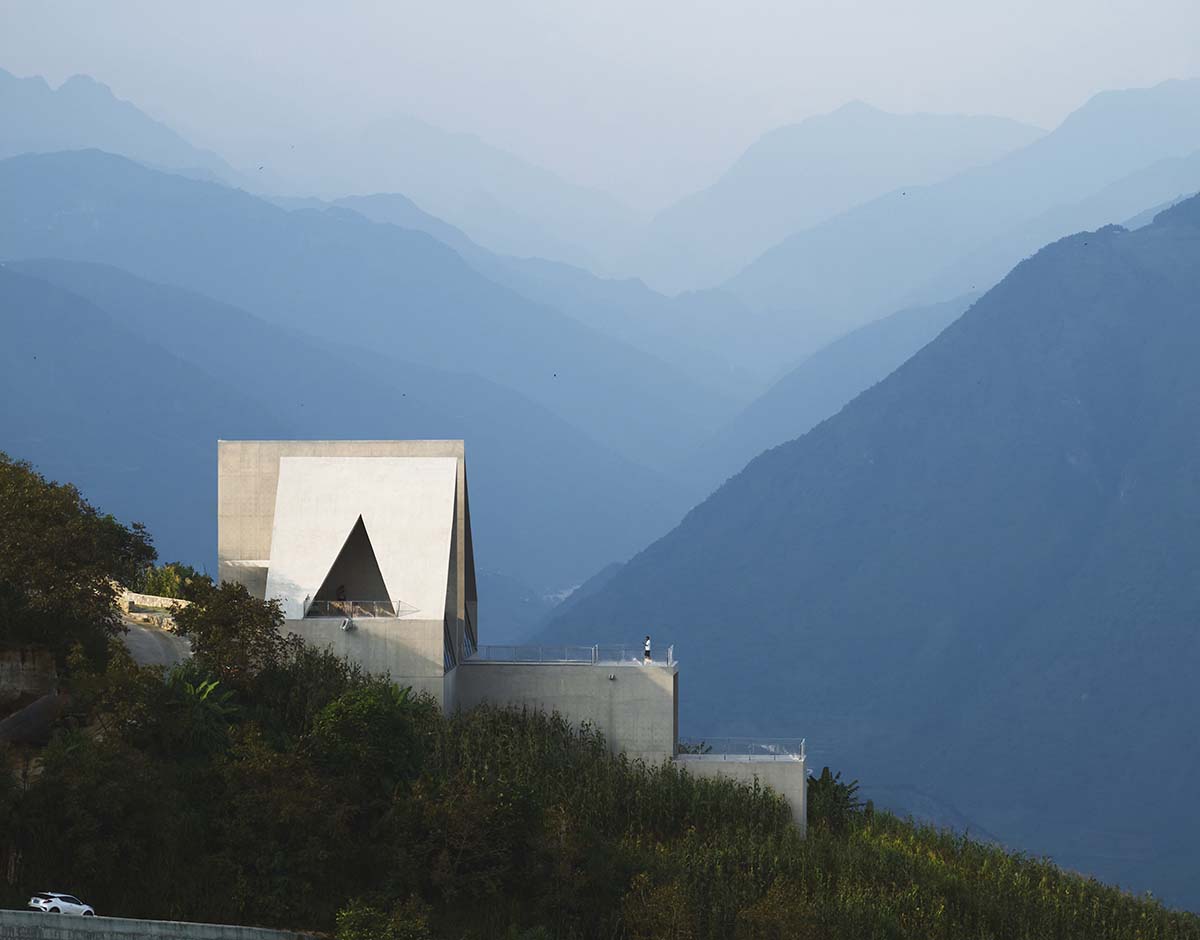
The Nujiang River, China's last unrestricted river, separates the Gaoligong Mountains and Biluo Snow Mountain to its east and west as it meanders through the creases of the Hengduan Mountains in western Yunnan.
Perched atop the Gaoligong Mountains, the Nujiang Grand Canyon Bookstore of Librairie Avant-Garde faces the two sacred mountains of the Lisu and Bai ethnic groups on the other side of the river.
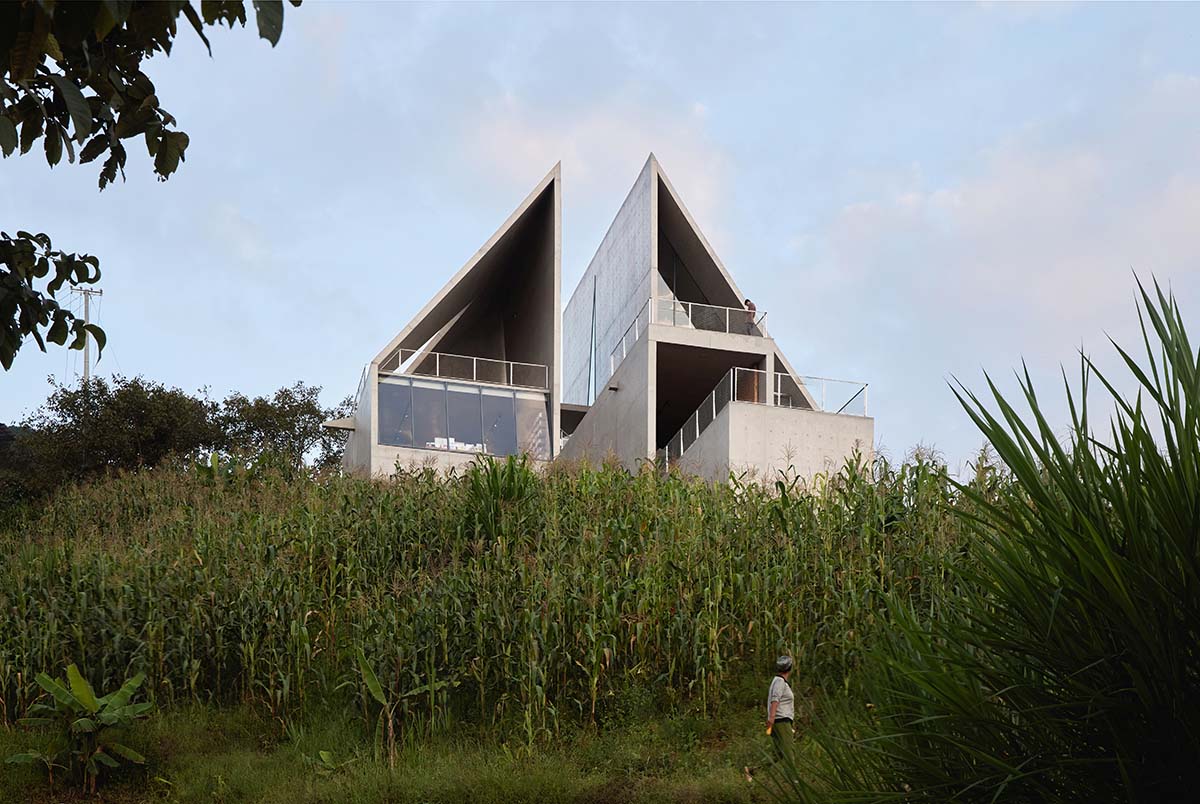
The third partnership began in 2021 when Librairie Avant-Garde asked TAO to design three new stores in Nujiang Prefecture.
The bookstore is located in Yangpo Village, which is situated atop the Gaoligong Ridge. For many generations, it has been a primitive Lisu settlement. One of the most prominent ethnic groups along the Nujiang River, the Lisu originally lived in the expansive river valleys of the Yalong and Jinsha Rivers in Sichuan and Yunnan.
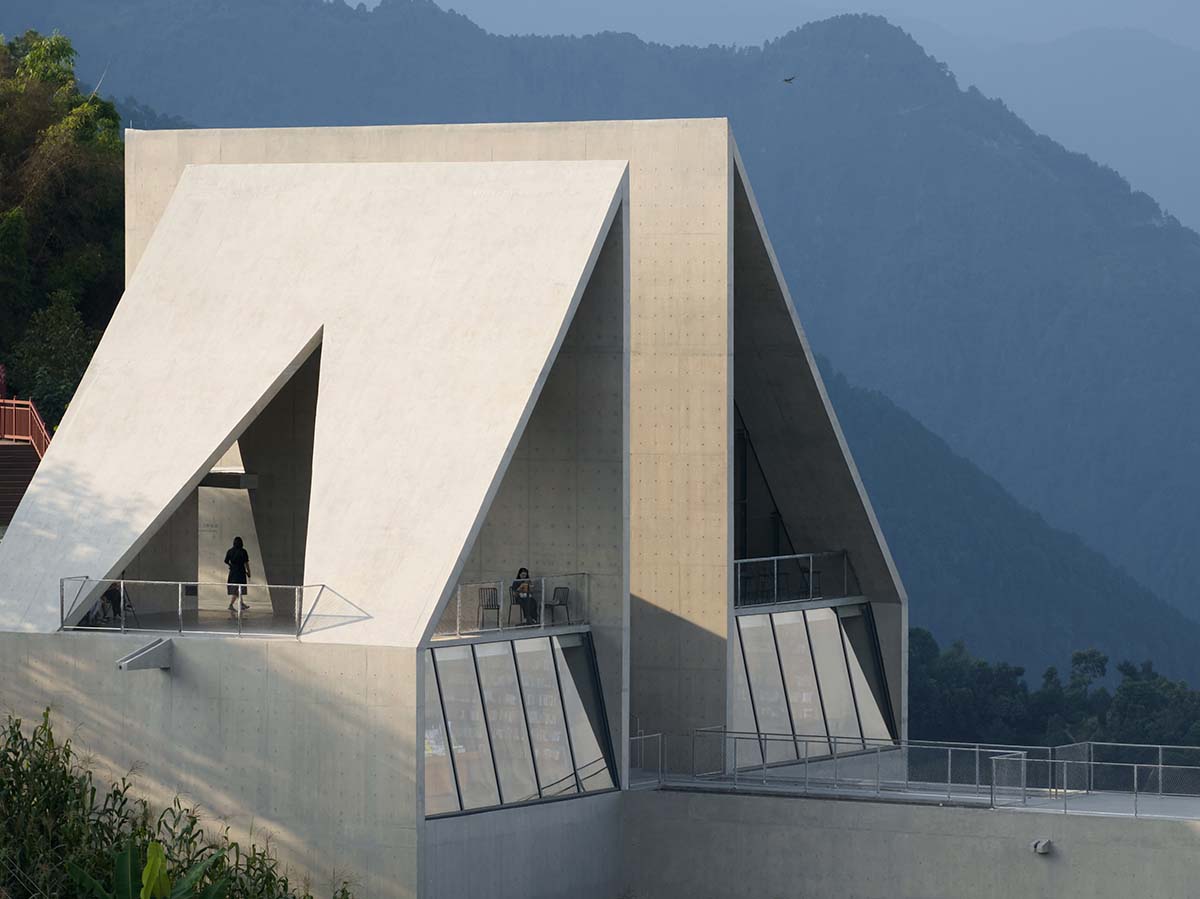
Outdoor terrace
In the middle of the 16th century, they fled to northwest Yunnan because of the threat of war. They created unique tools, especially crossbows and arrows, which became a cultural totem and a major source of inspiration for the project after adapting to the difficult terrain.
The project, which faces the canyon from Yangpo Village's entrance, organically represents the line separating nature and civilization.
The site was originally known as the "Nujiang Grand Canyon Bookstore of Librairie Avant-Garde" because of an incomplete viewing platform that provided a panoramic view of the canyon and a prime vantage point of the Hengduan Mountains.
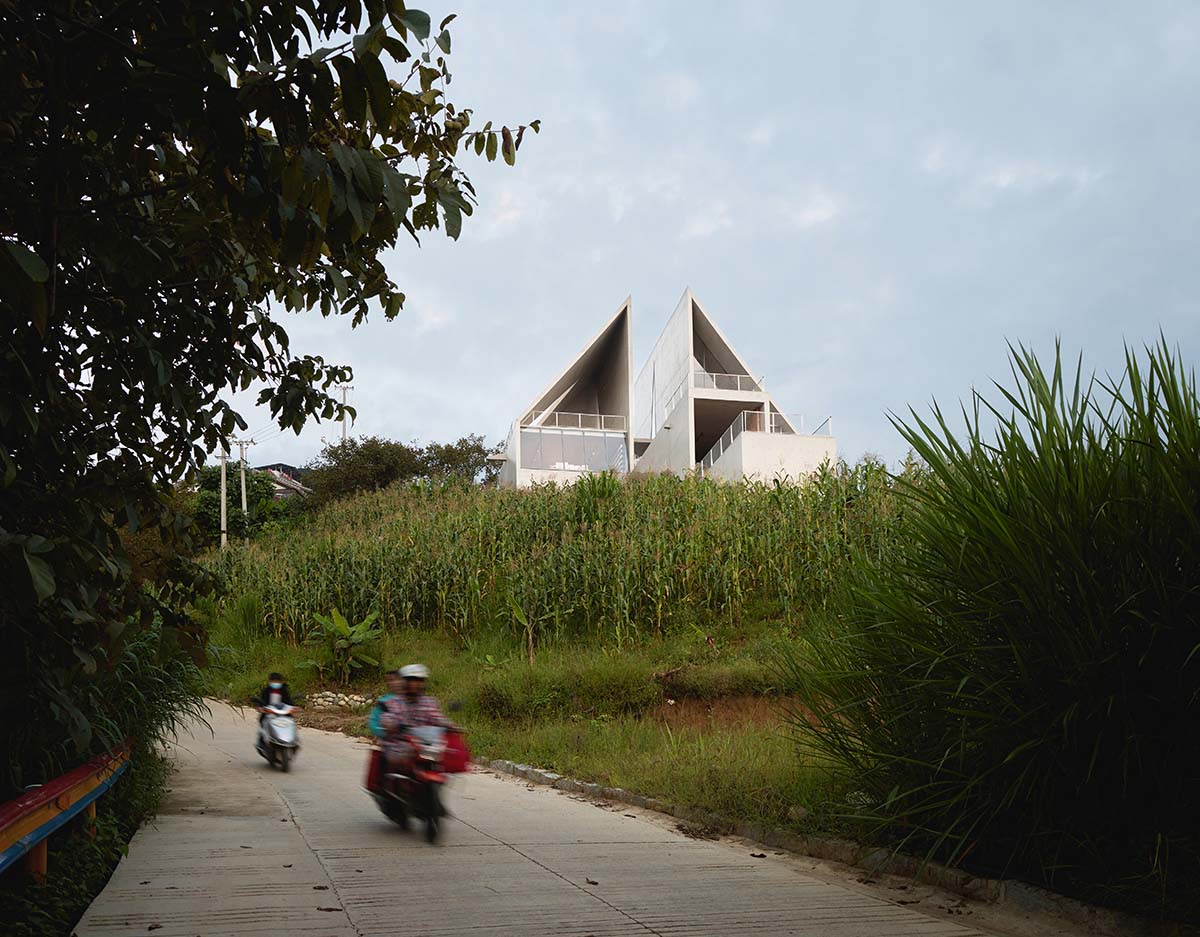
Street view
Additionally, the prominent location serves as both the public face of Librairie Avant-Garde and the village's landmark. As a result, the structure needs to be a bold, avant-garde symbol that is in conversation with the village—differentiated but in harmony with its surroundings.
The main concern throughout the design is how architecture strikes a balance between uniqueness and local context. Architecture must adapt to the Lisu village, which stretches along the ridge of the Gaoligong Mountains and embodies both strong natural characteristics and cultural identity.
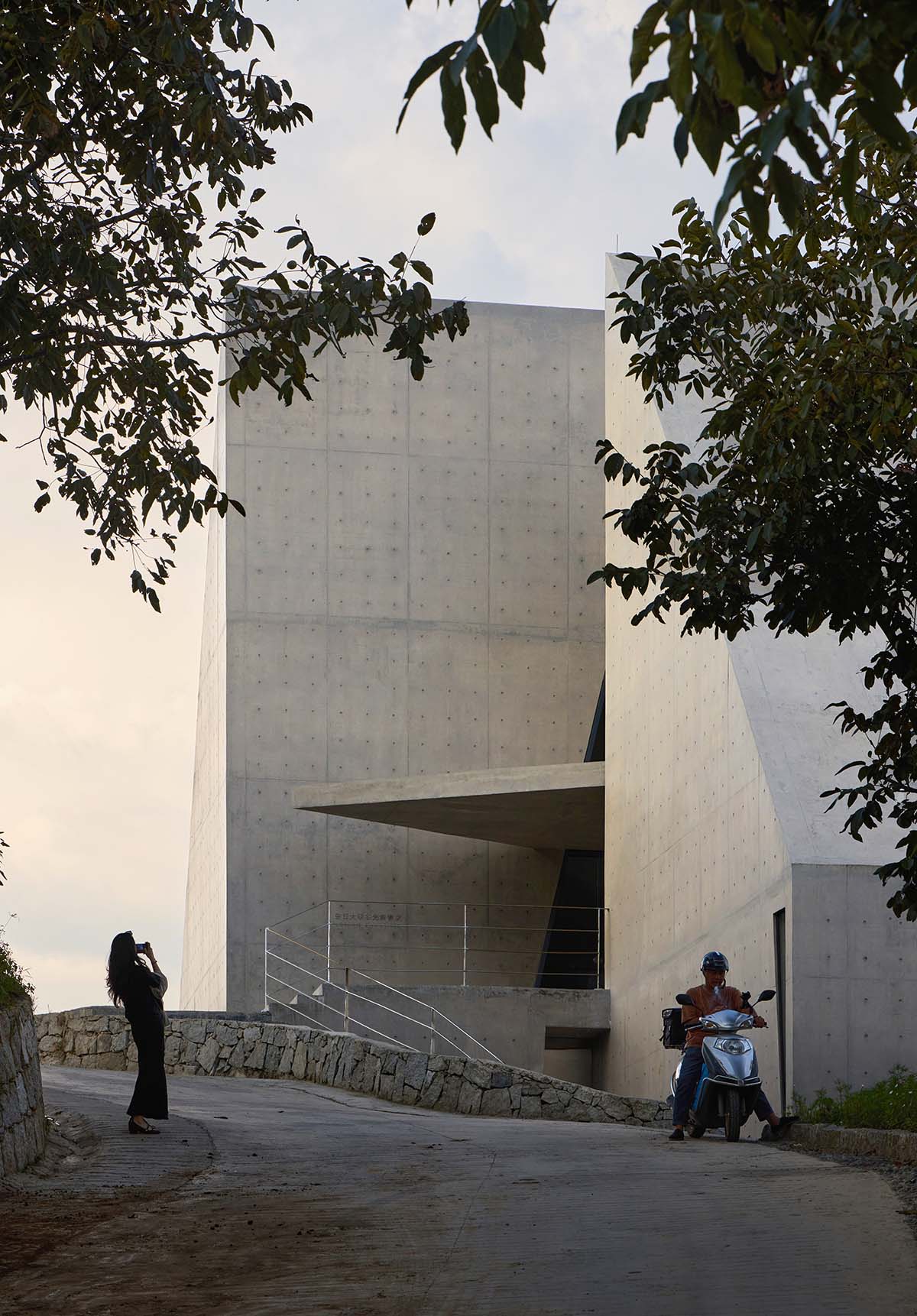
Entrance
The unique texture of mountainous terrain has been captured by Yangpo Village, an ancestral Lisu settlement that has grown naturally along the contours. However, remnants of construction from different eras overlap, creating a disorganized and collage-like appearance, as homes from different periods have displaced and compressed one another.
As a highly abstract expression rooted in the current construction context, the bookstore ultimately adopts a completely contemporary language to respond to the village's prevalent sloped-roof typology within the complex historical context.
The bookstore also turns into a medium that links the village's past and present as a result of this conversation.
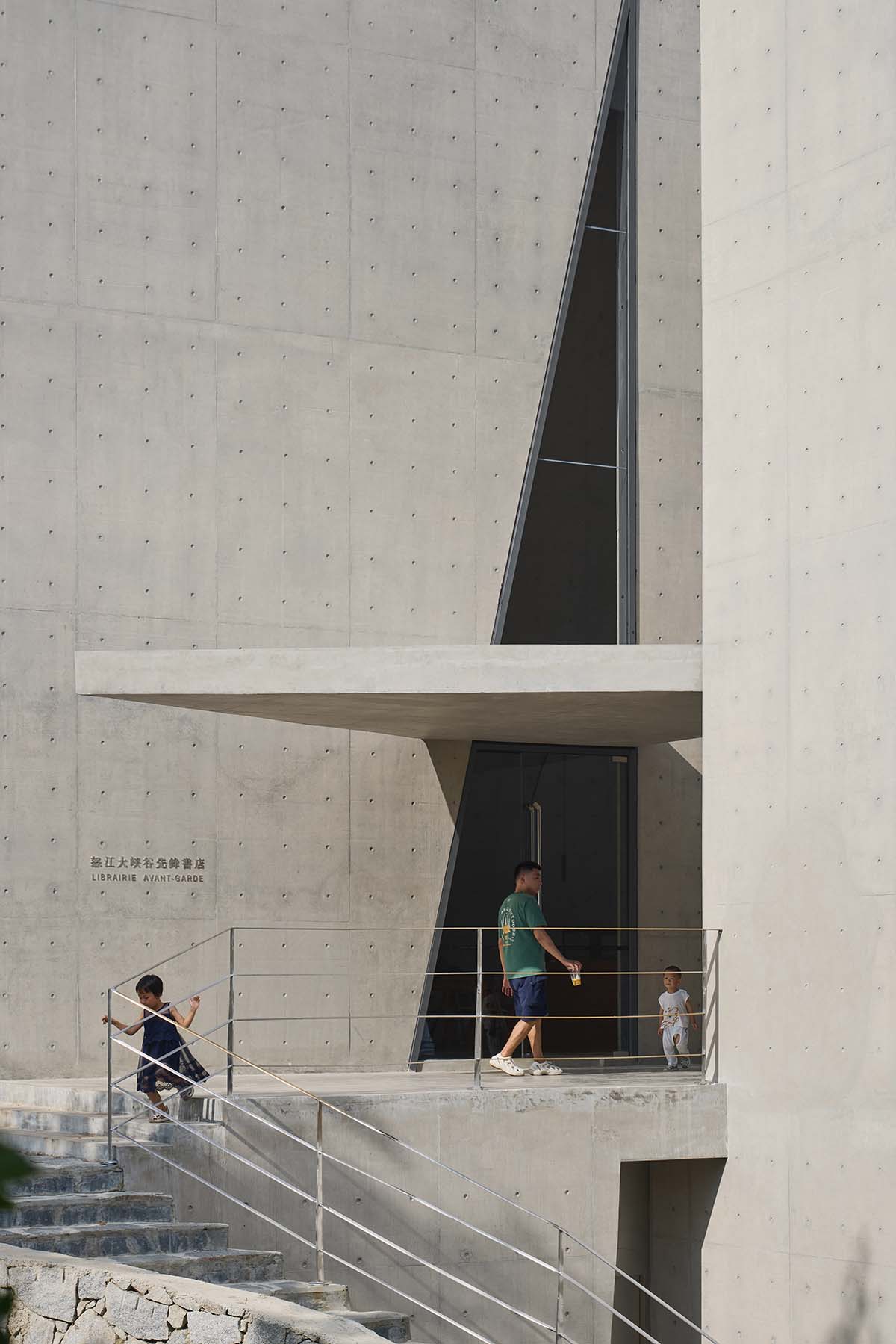
Entrance
The structure connects with the mountainous landscape through the slanted areas it creates. The building's steep gradient and angled geometry, combined with the site's natural topography, create a dynamic momentum akin to "an arrow on the bowstring" as it sits atop the slope at the village entrance.
The building's dynamic form is reflected in the shapes of the numerous openings on the exterior walls that are oriented in various directions. The building serves as a conduit between the sky and the ground, with each opening framing a distinct view of the canyon landscape.
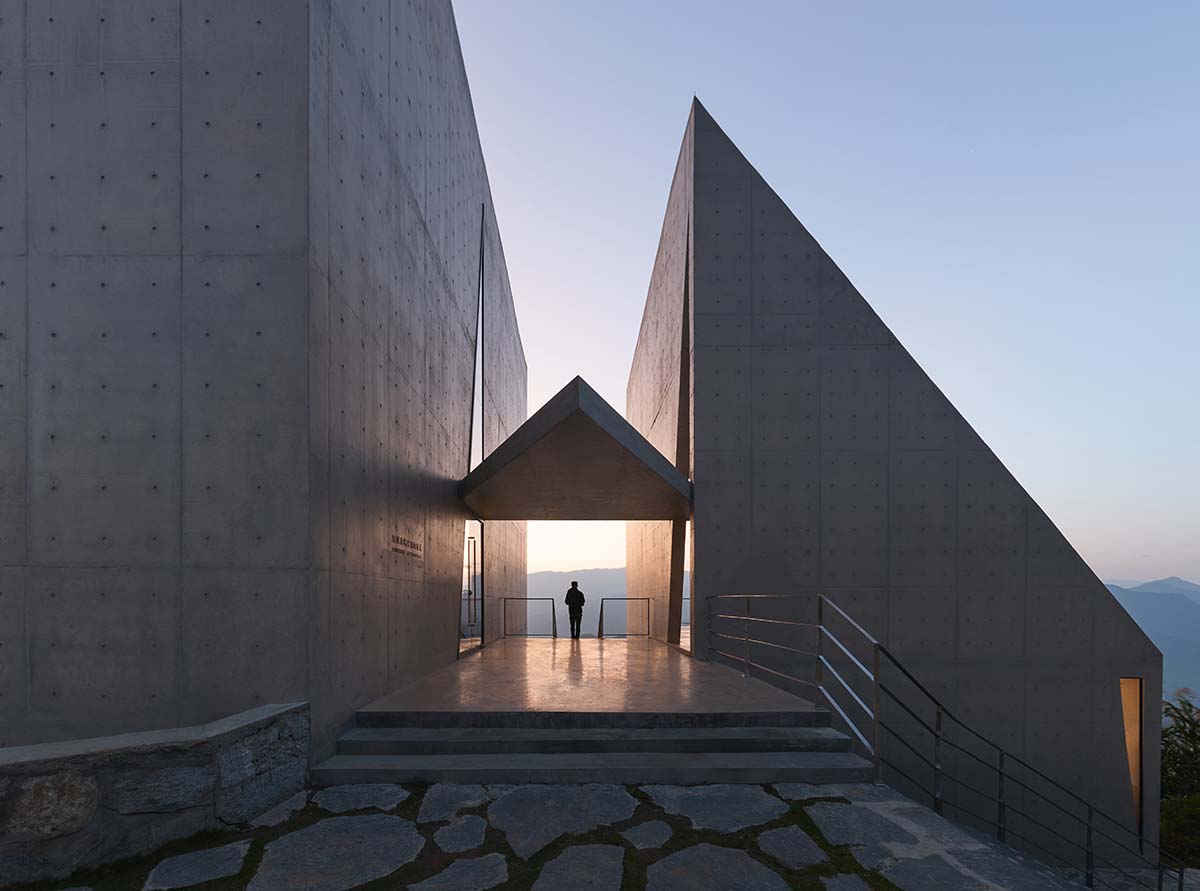
Entrance
There are two distinct circulation routes connecting the building's three levels. Following these paths both inside and outside the structure, one is treated to a constantly shifting series of areas, where they come across passageways that are occasionally lofty and narrow, occasionally dim and profound, and occasionally wide and airy.
Internal circulation starts at the tall café at the top, which has a sloping roof that faces the sky and creates a meditative atmosphere. Heavy concrete walls on three sides protect visitors from the elements as they descend to the mid-level bookstore. Two skylights beneath the water's surface provide a shimmering light for the lower-level theater.

Cafe
Two six-meter-tall camphor-wood doors at the theater's end open and close in a daily ritual. While the land lies in silence and Nujiang thunders with rage outside, people read, recite, and converse with past souls inside the doors.
The canyon, where the Nujiang and literature meet, opens up like the curtain of a stage.
Similar to the canyon composition created by the Nujiang River with tall mountains on either side, the entrance is where the external circulation starts, where two opposing forms define a narrow and elevated entry space.
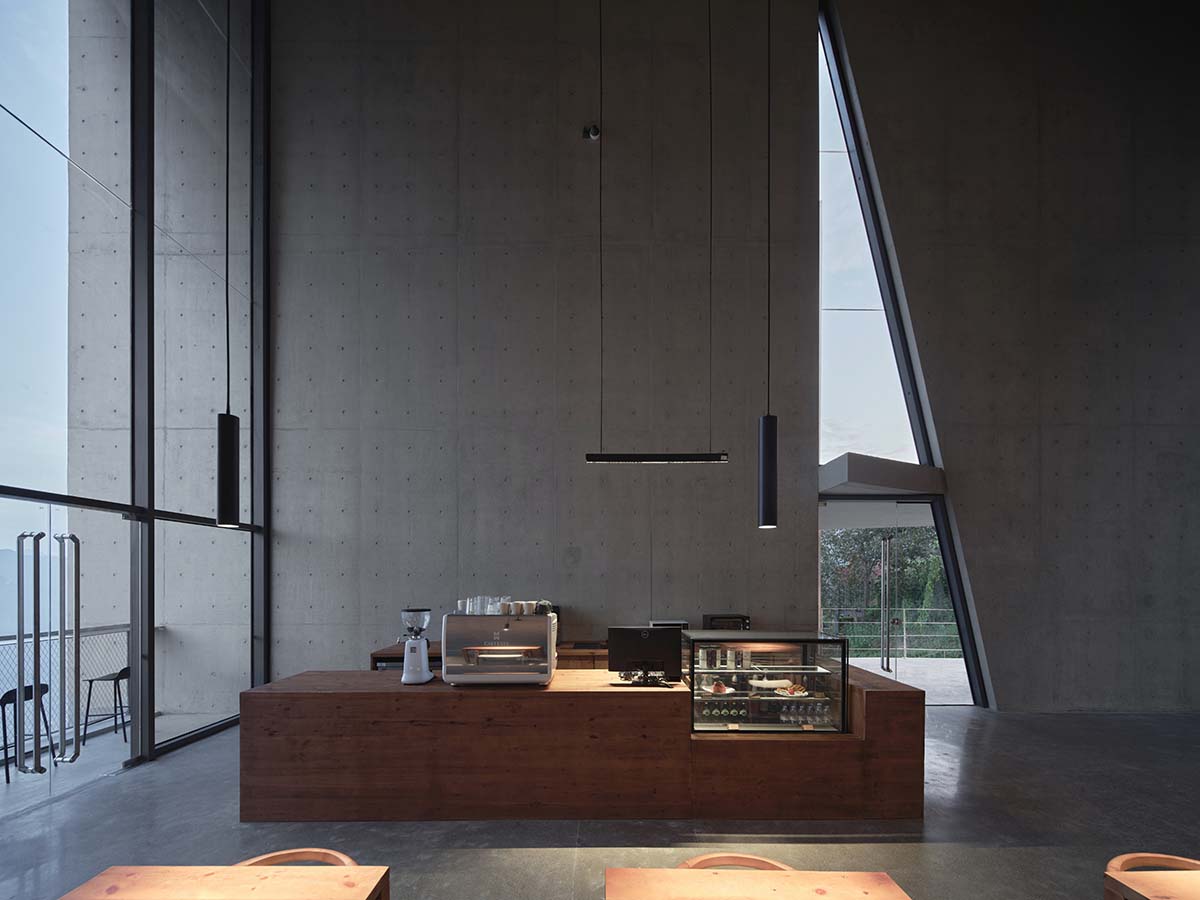
Cafe bar
A sense of openness is revealed as one abruptly moves from the man-made "canyon" to the natural canyon after leaving the entry space and descending along the central axis.
The building's main entrance is in line with Yangpo Village's main road, as can be seen from the aerial view. The two viewing terraces on different levels are connected by an outdoor circulation, creating a public area that is always open to locals and tourists.
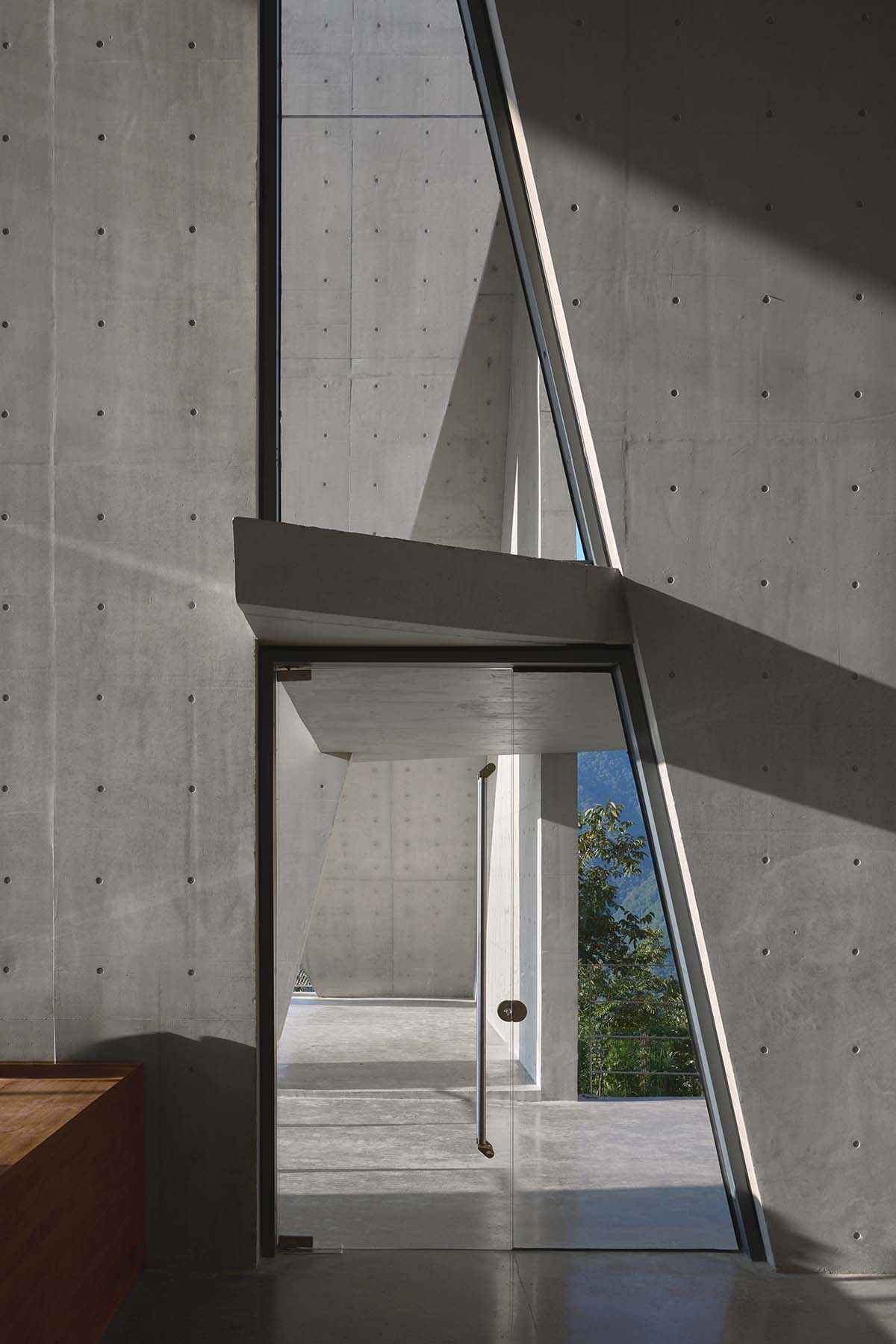
Entrance of cafe
Accordingly, the bookstore can be viewed as an extension of the village's public area, which faces the canyon and combines vernacular mechanics with modern architectural language.
As its name implies, Librairie Avant-Garde is at the center of the village, aiming the Lisu people's crossbow toward the distant lands of poetry.
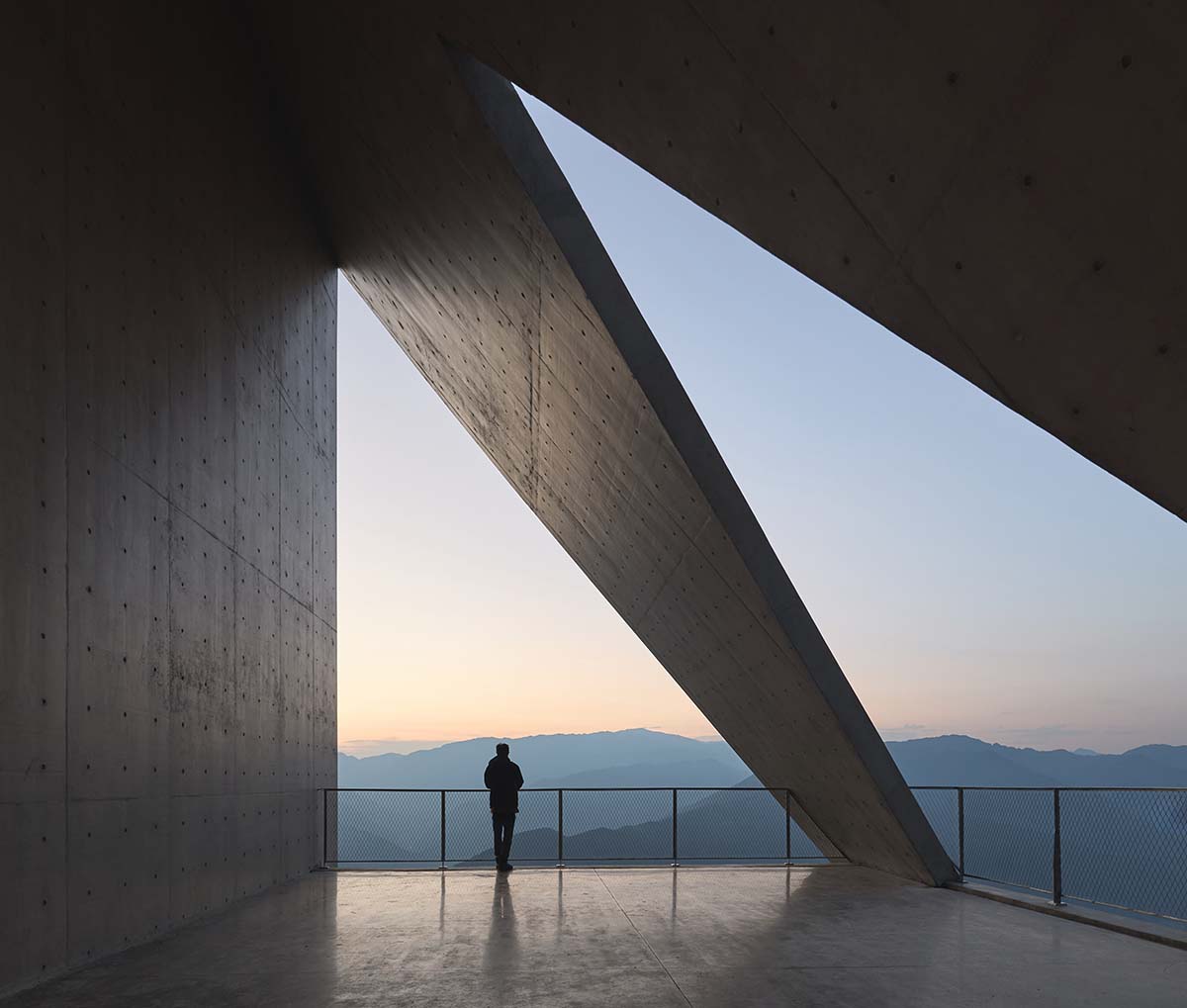
Terrace
Yangpo Village, an ethnic minority settlement, has benefited from the modern cultural spark brought by Librairie Avant-Garde. Librairie Avant-Garde will use the bookstore as a pivot to further revitalize the village's cultural life and raise awareness of the Nujiang Grand Canyon and ethnic minorities worldwide in the future.
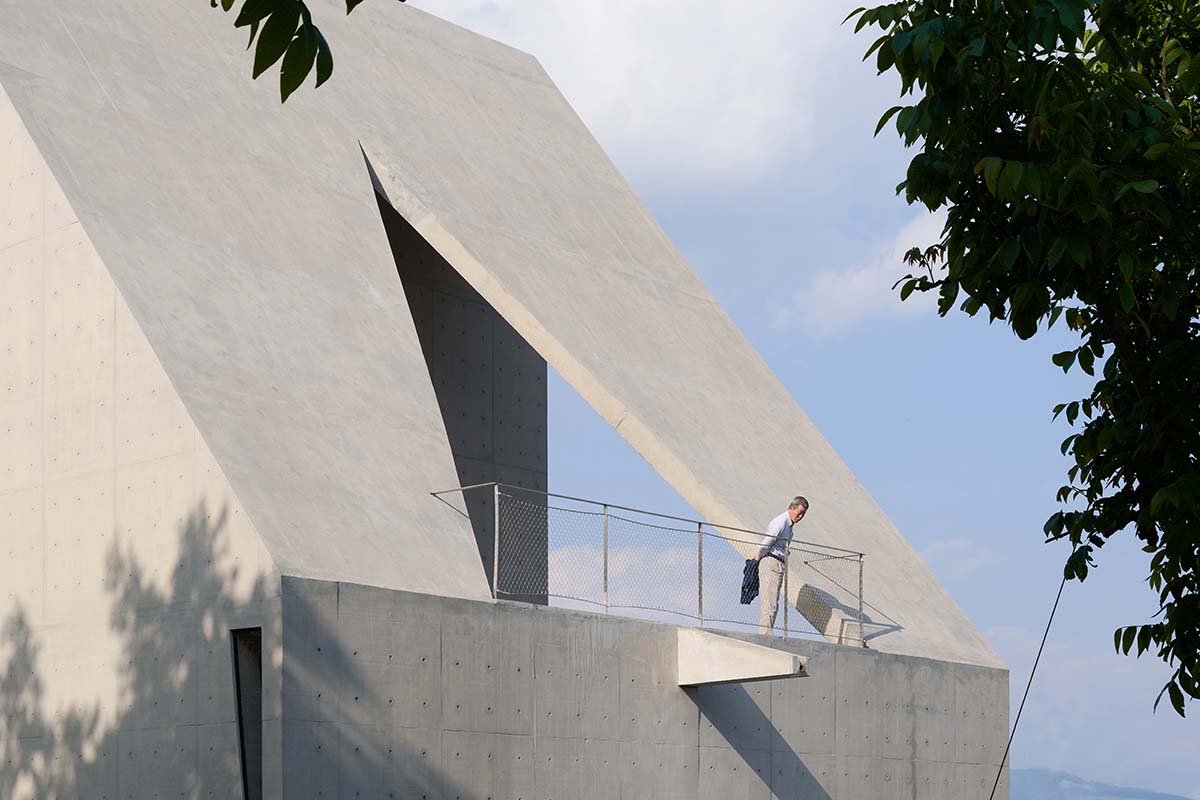
Terrace
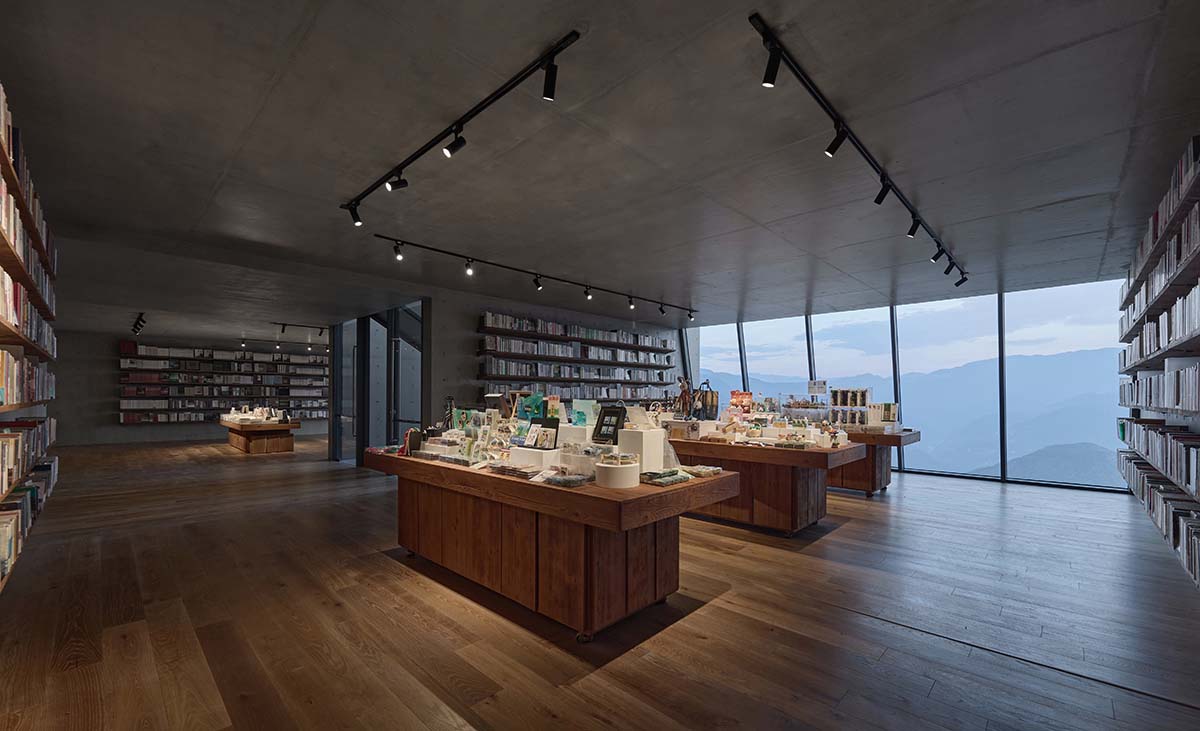
Bookstore
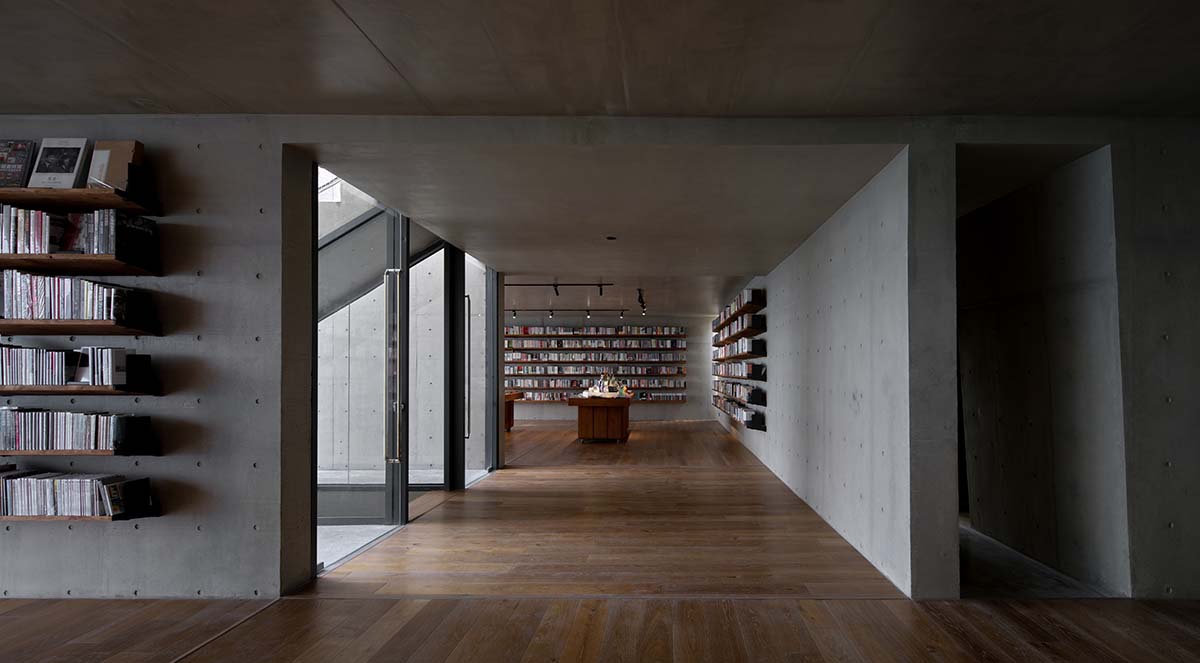
Bookstore
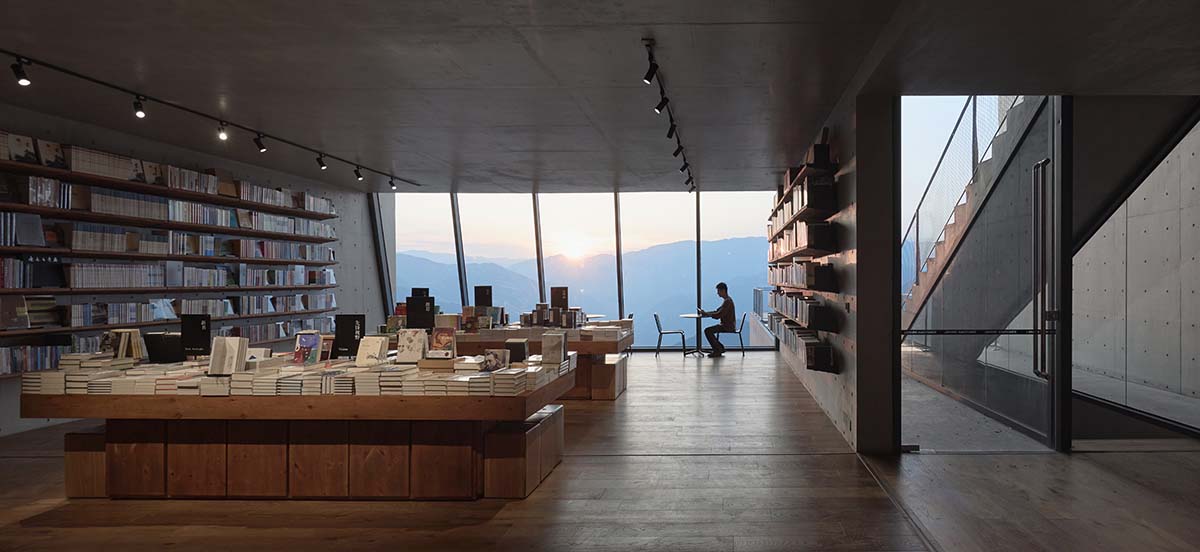
Bookstore
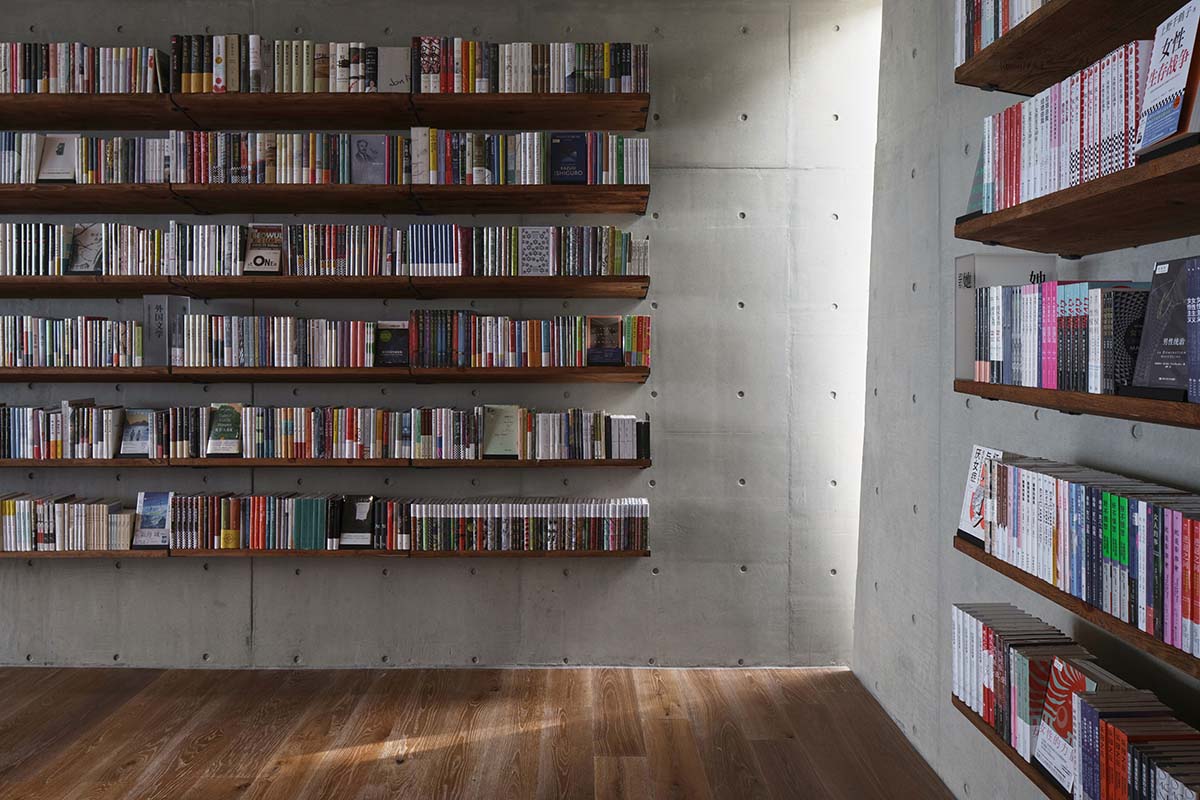
Bookstore
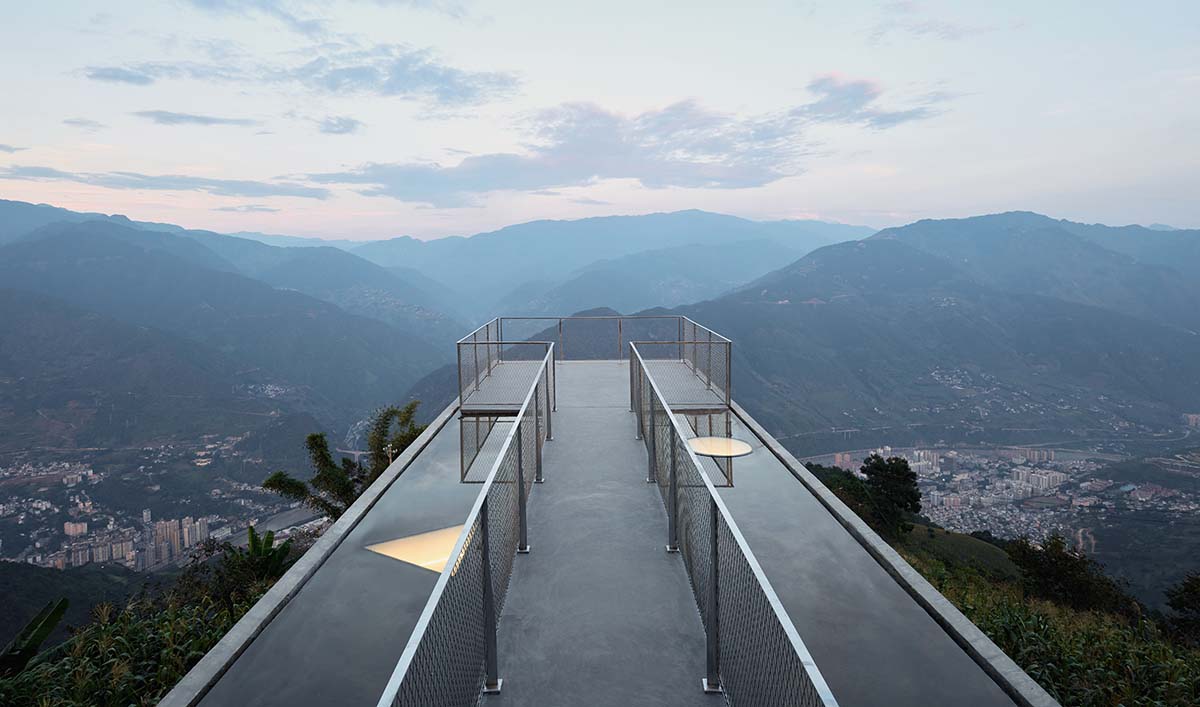
Outdoor terrace
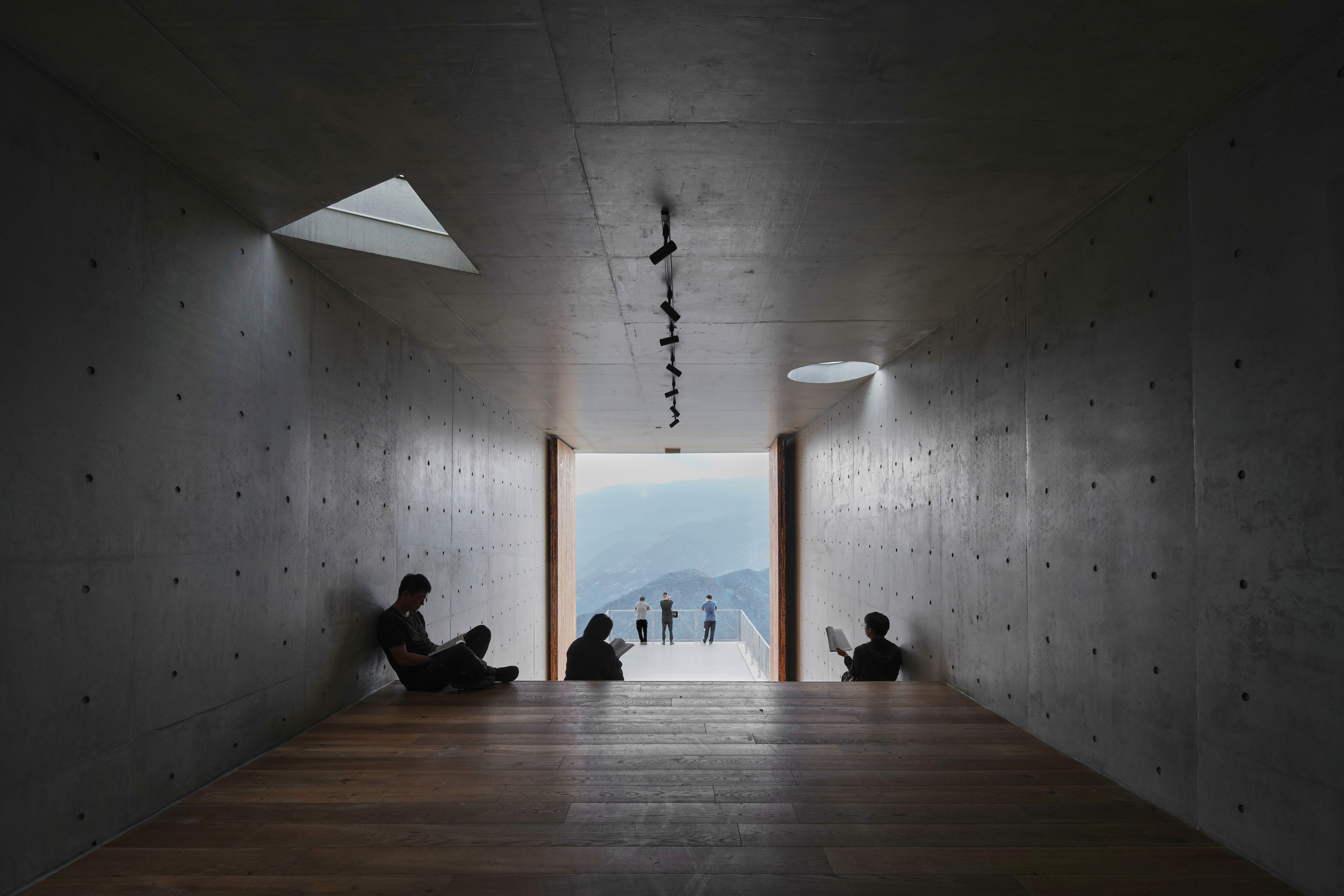
Theatre
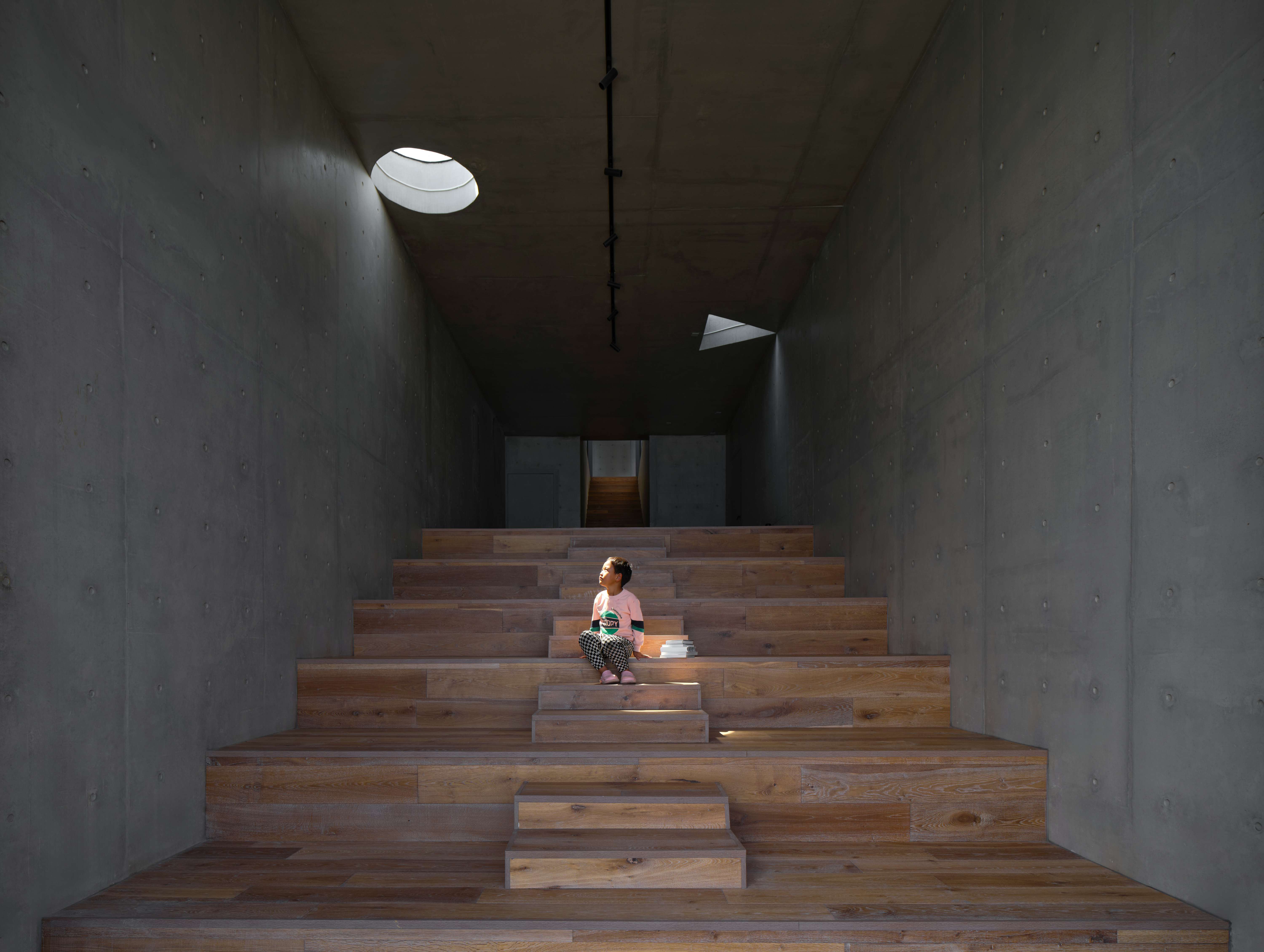
Theatre
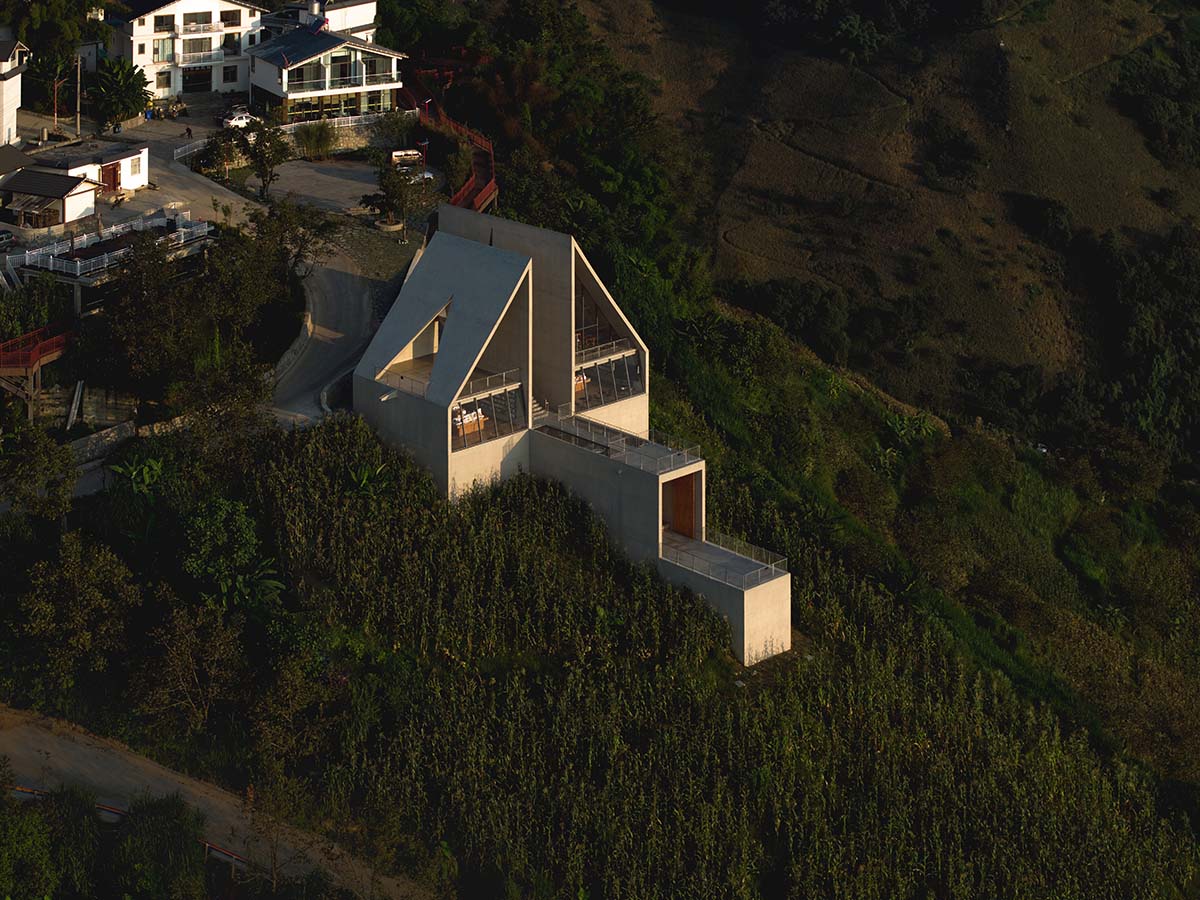
Bookstore at sunset
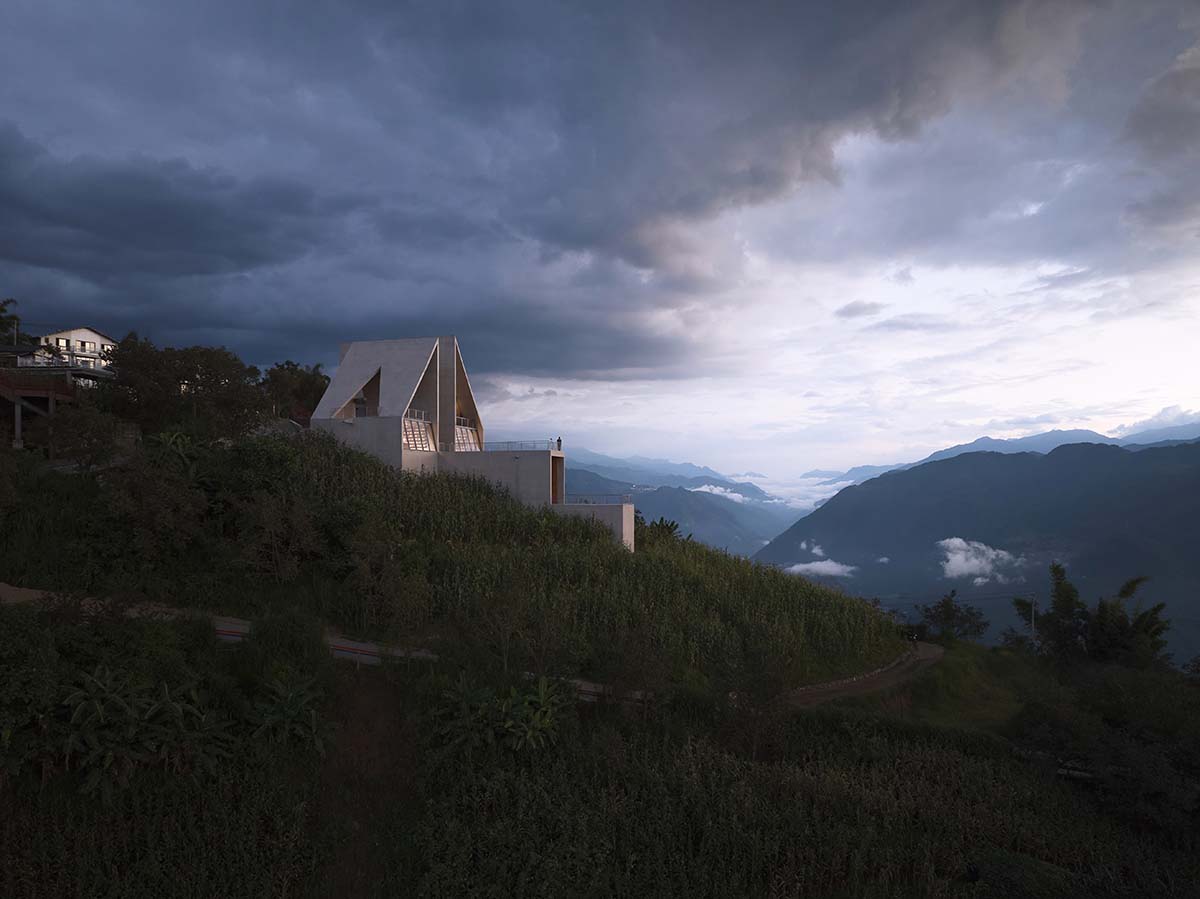
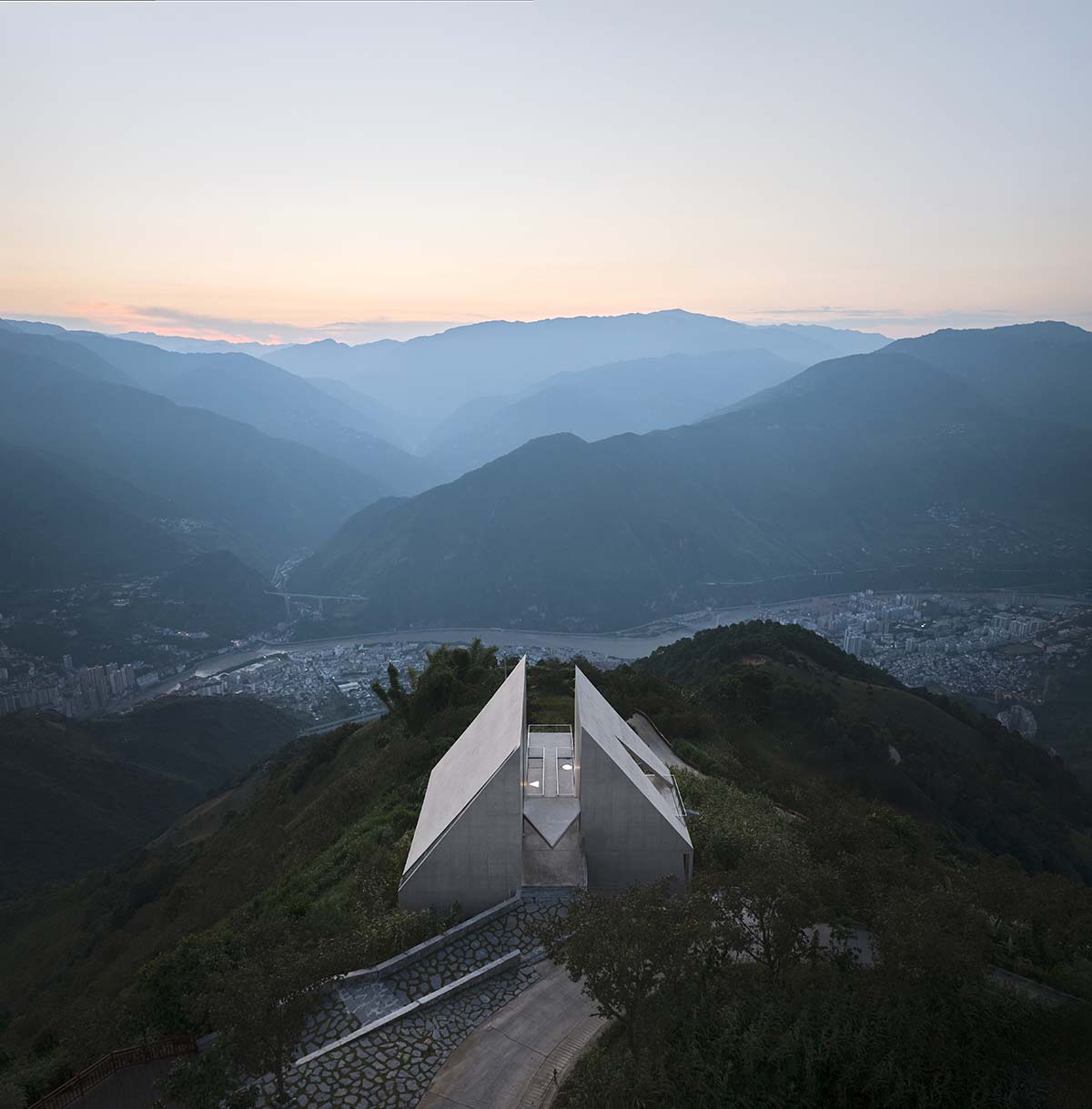
Bookstore at sunset
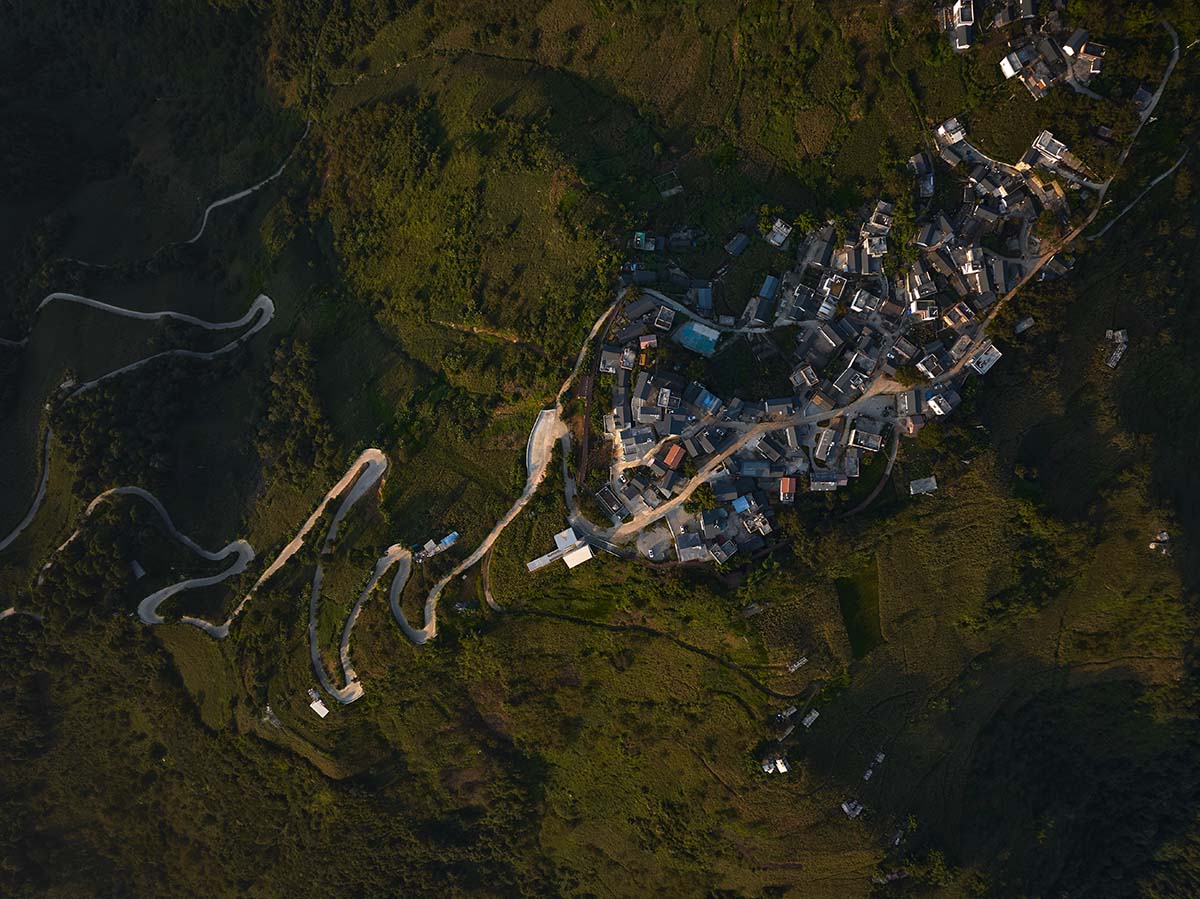
Overlook to the village
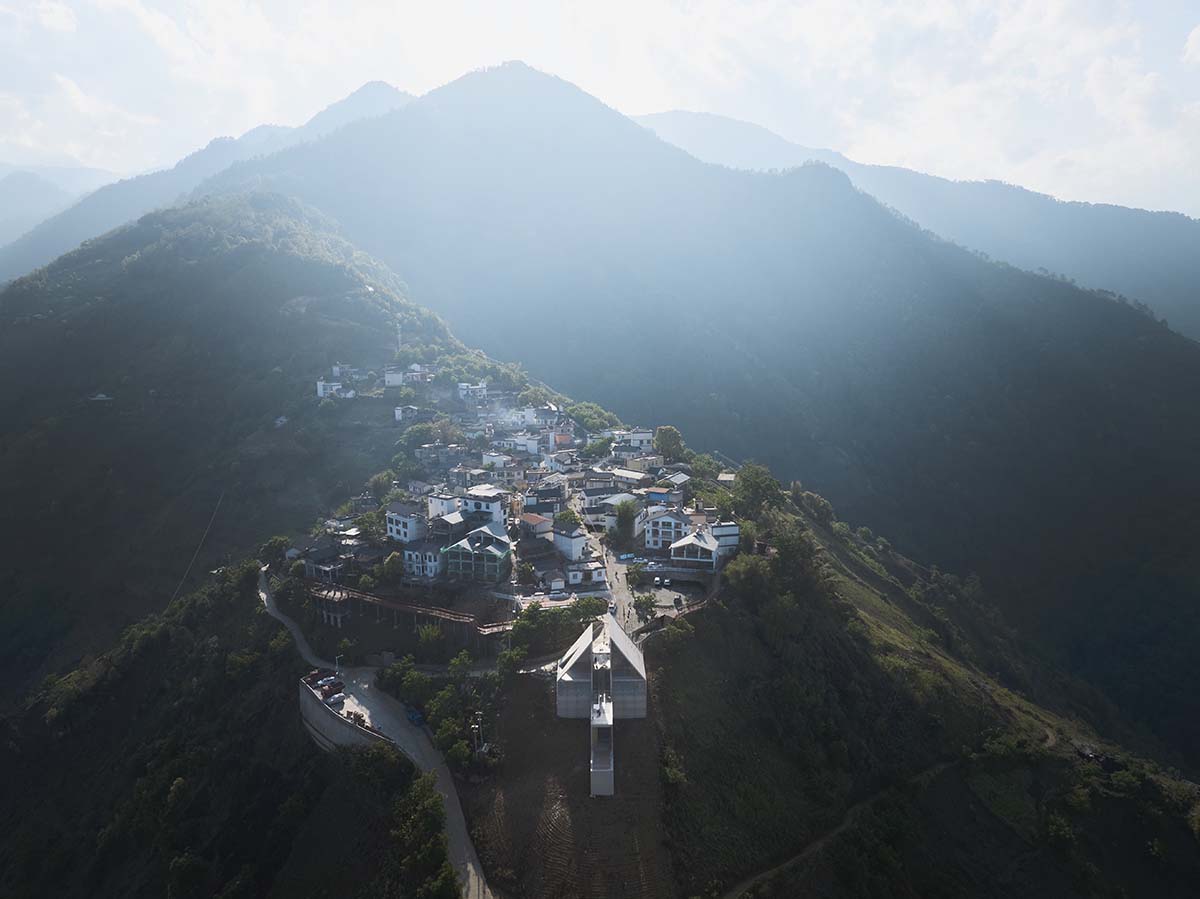
Aerial view
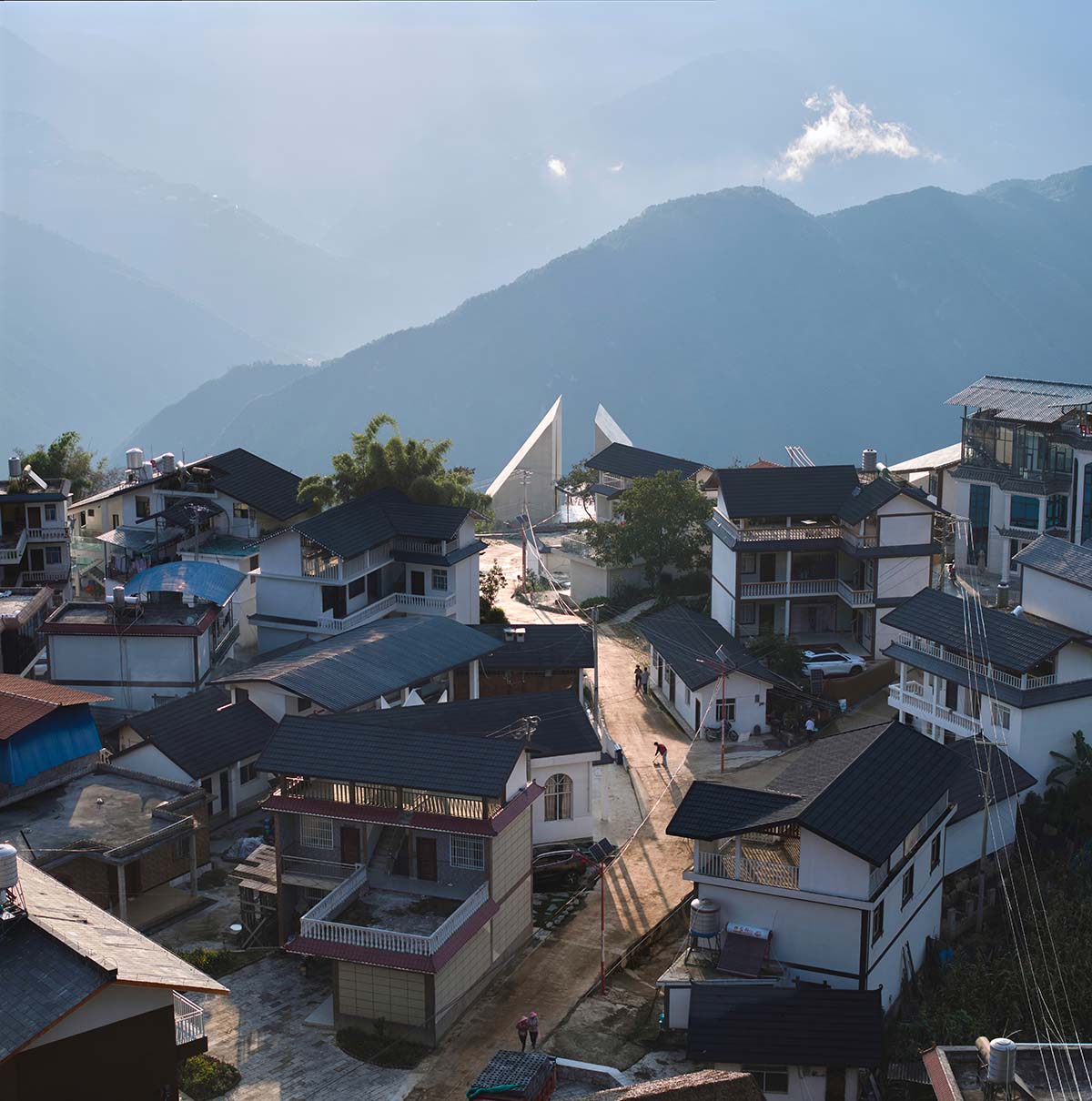
Village and bookstore
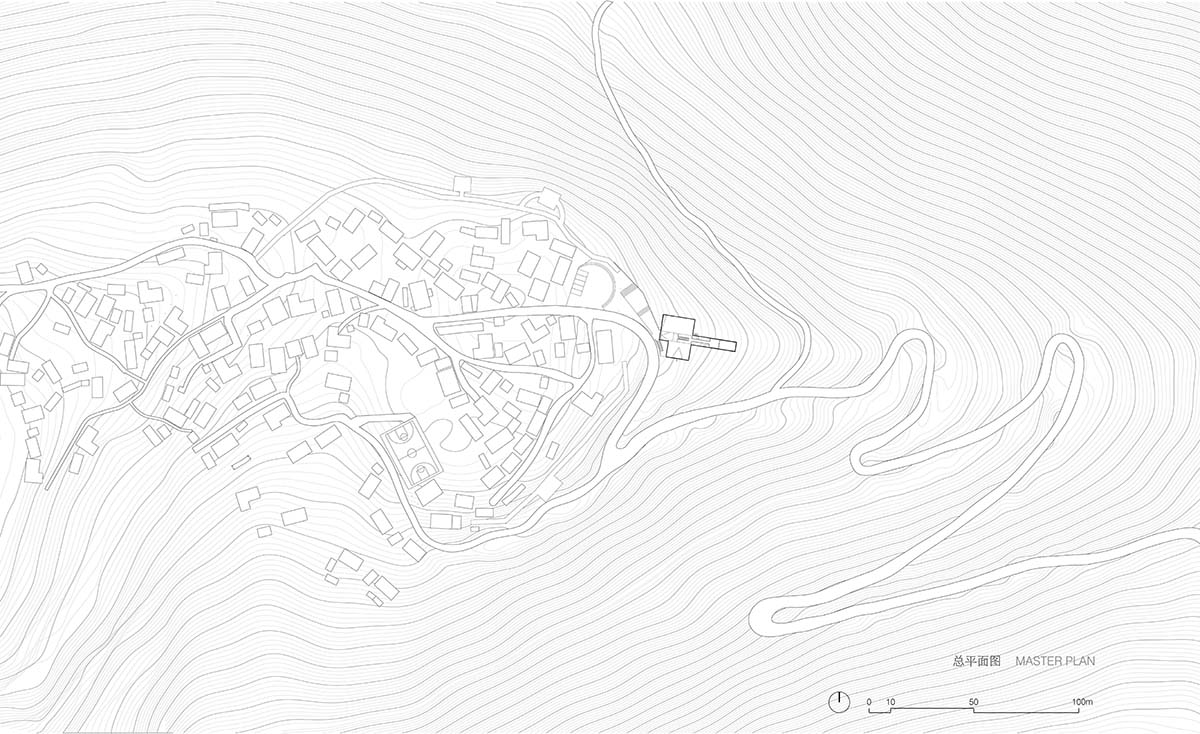
Masterplan
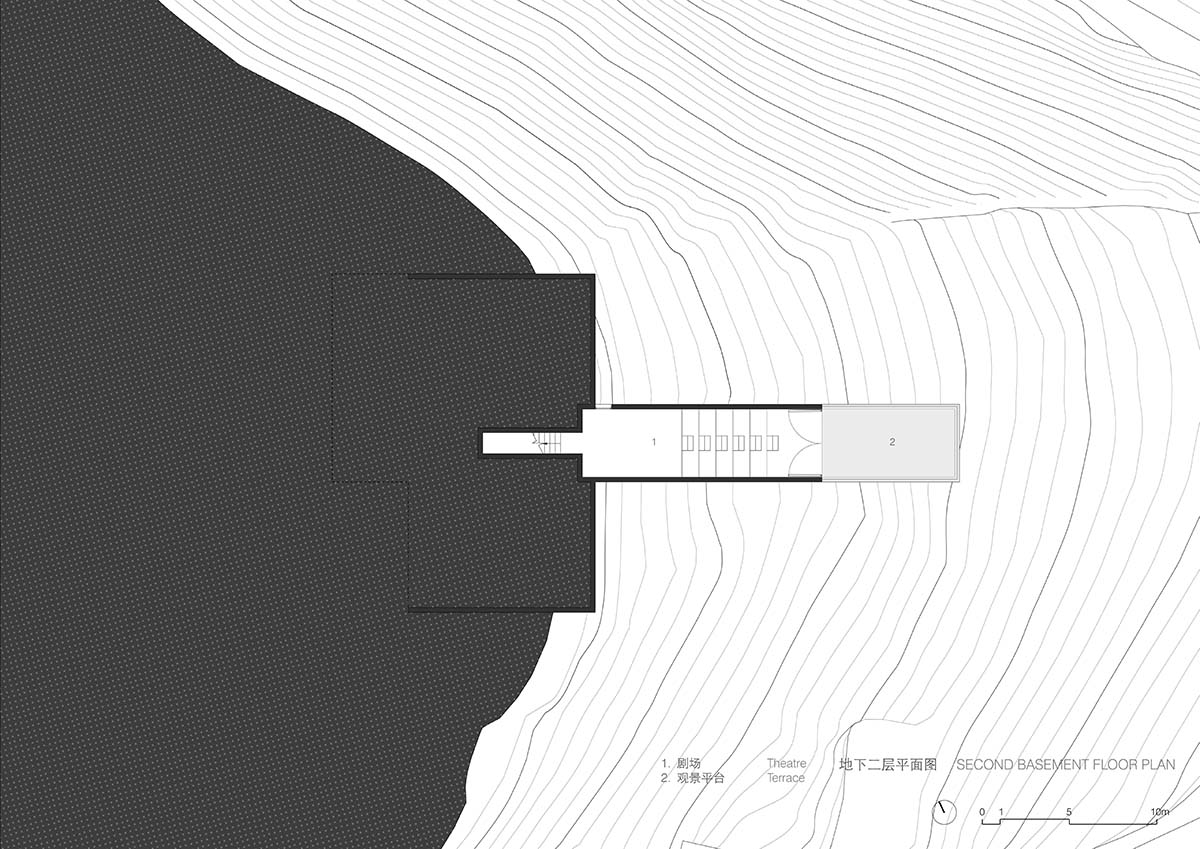
Second basement floor plan
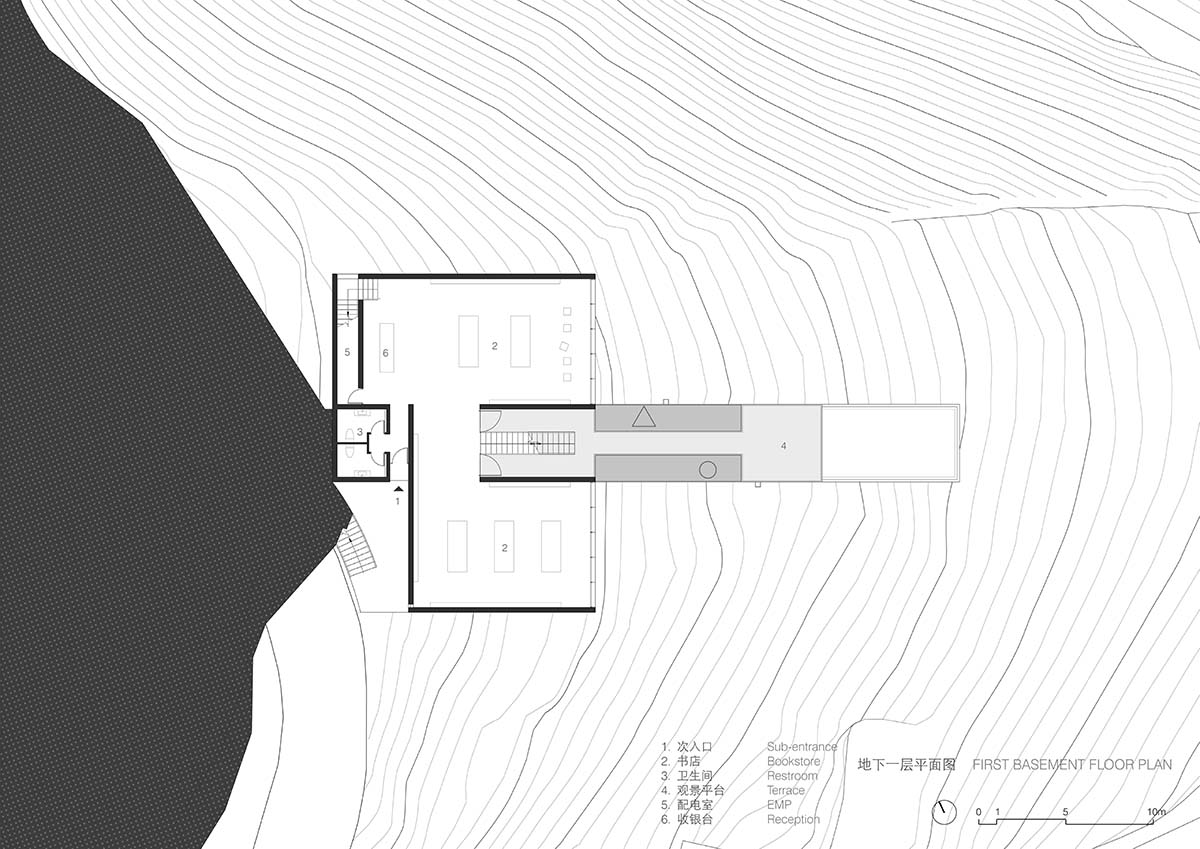
First basement floor plan
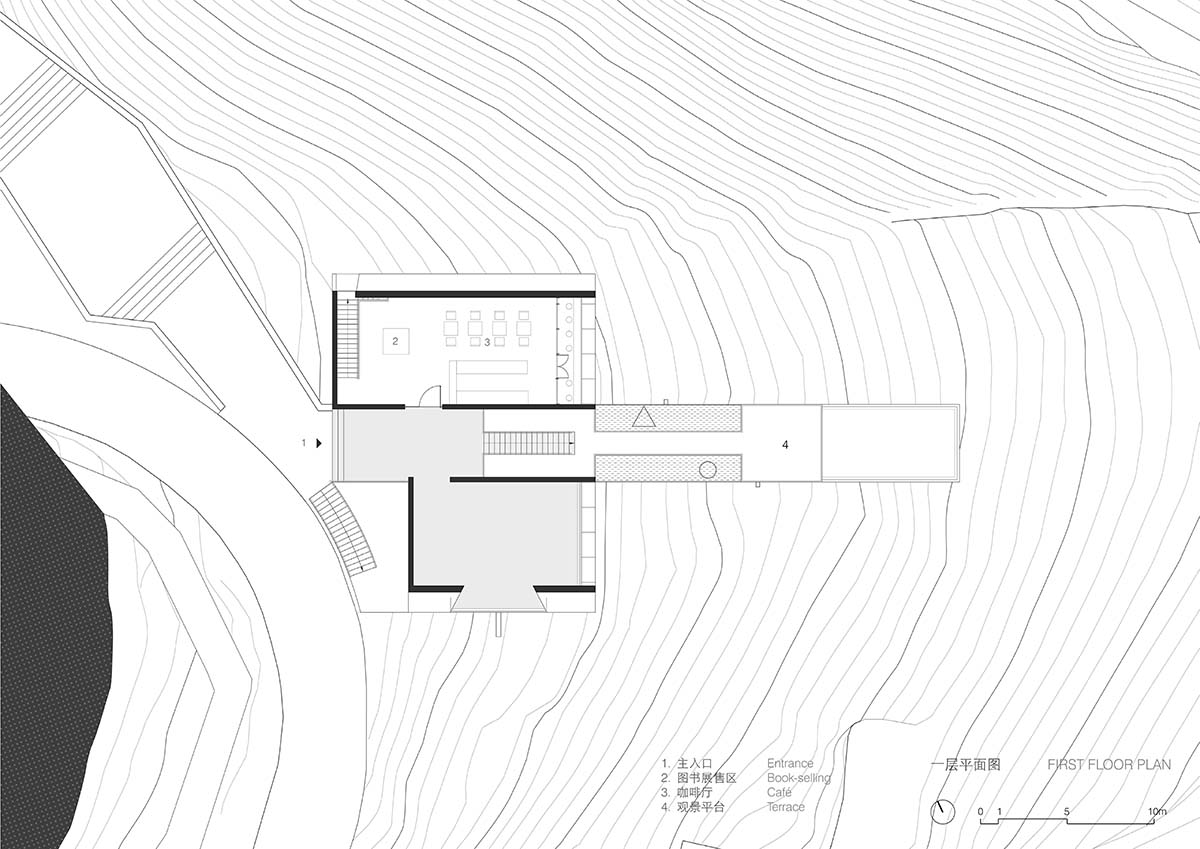
First floor plan
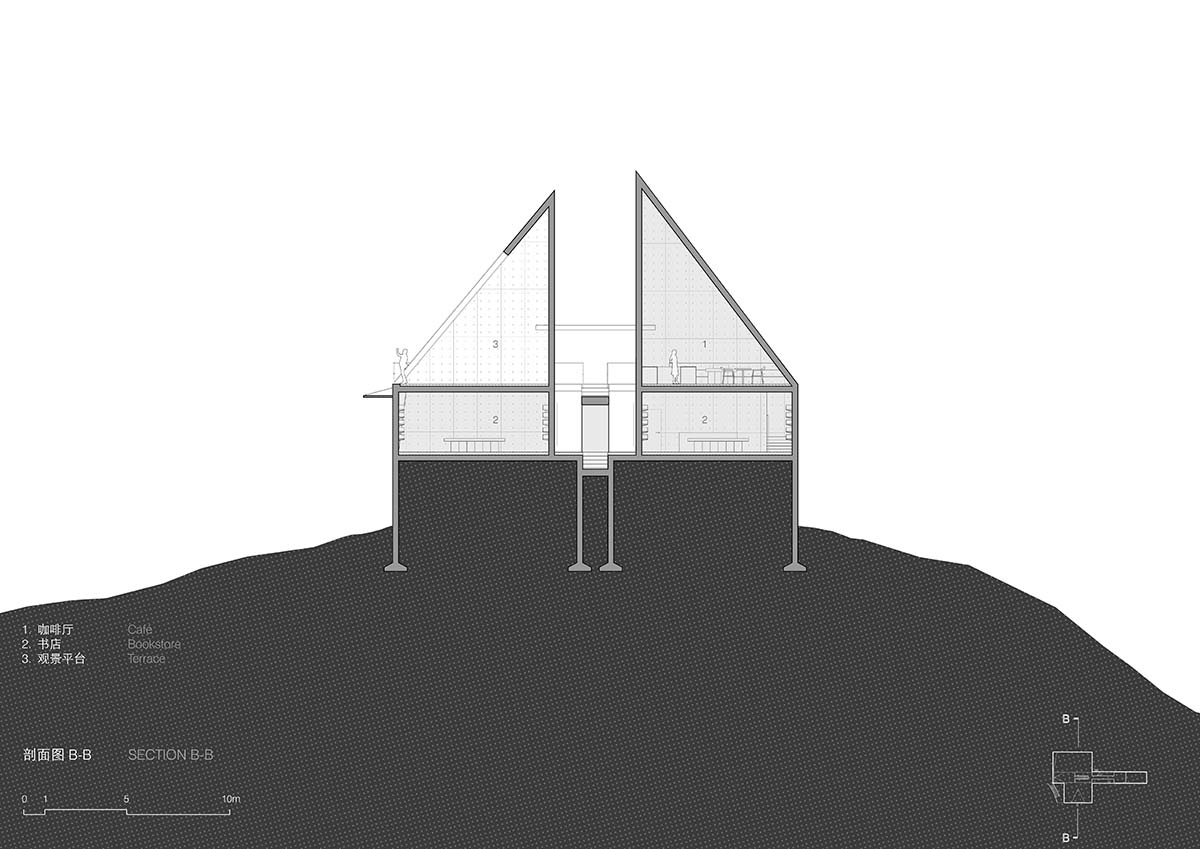
Cross section
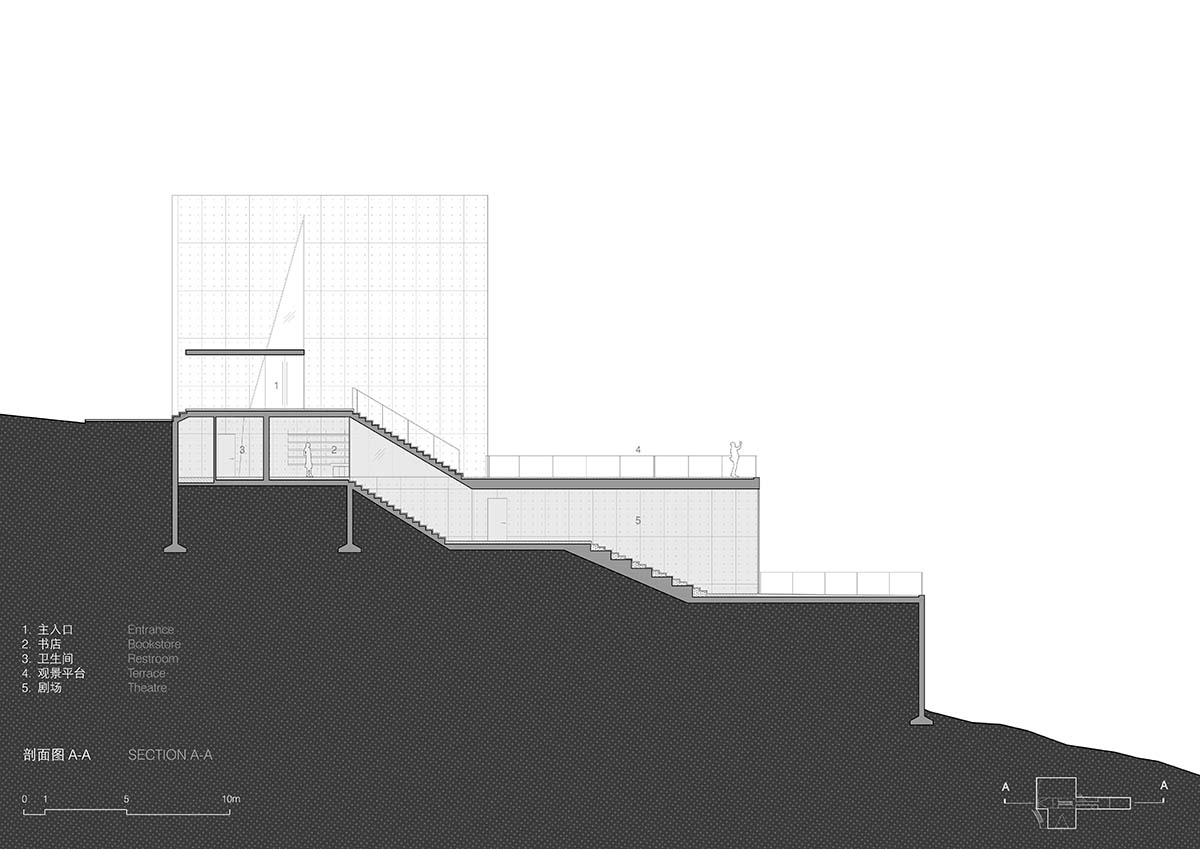
Longitudinal section
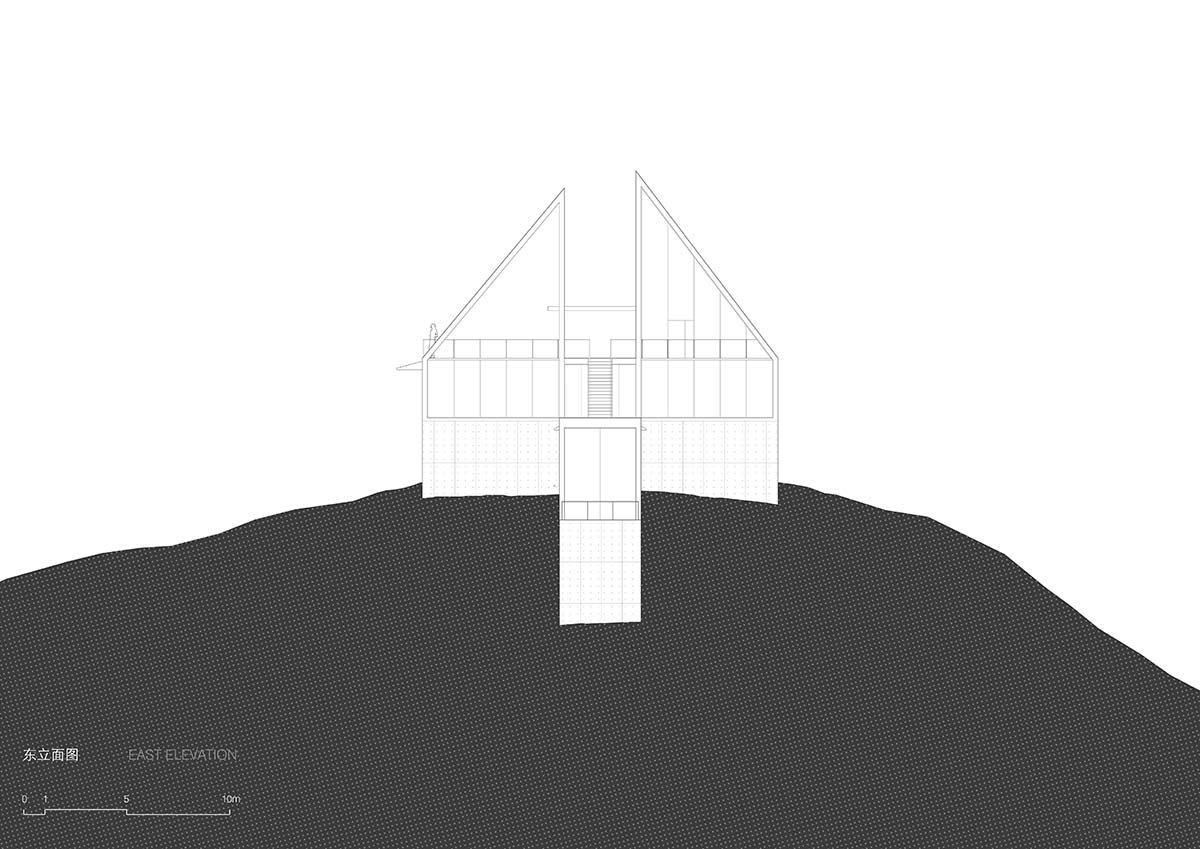
East elevation
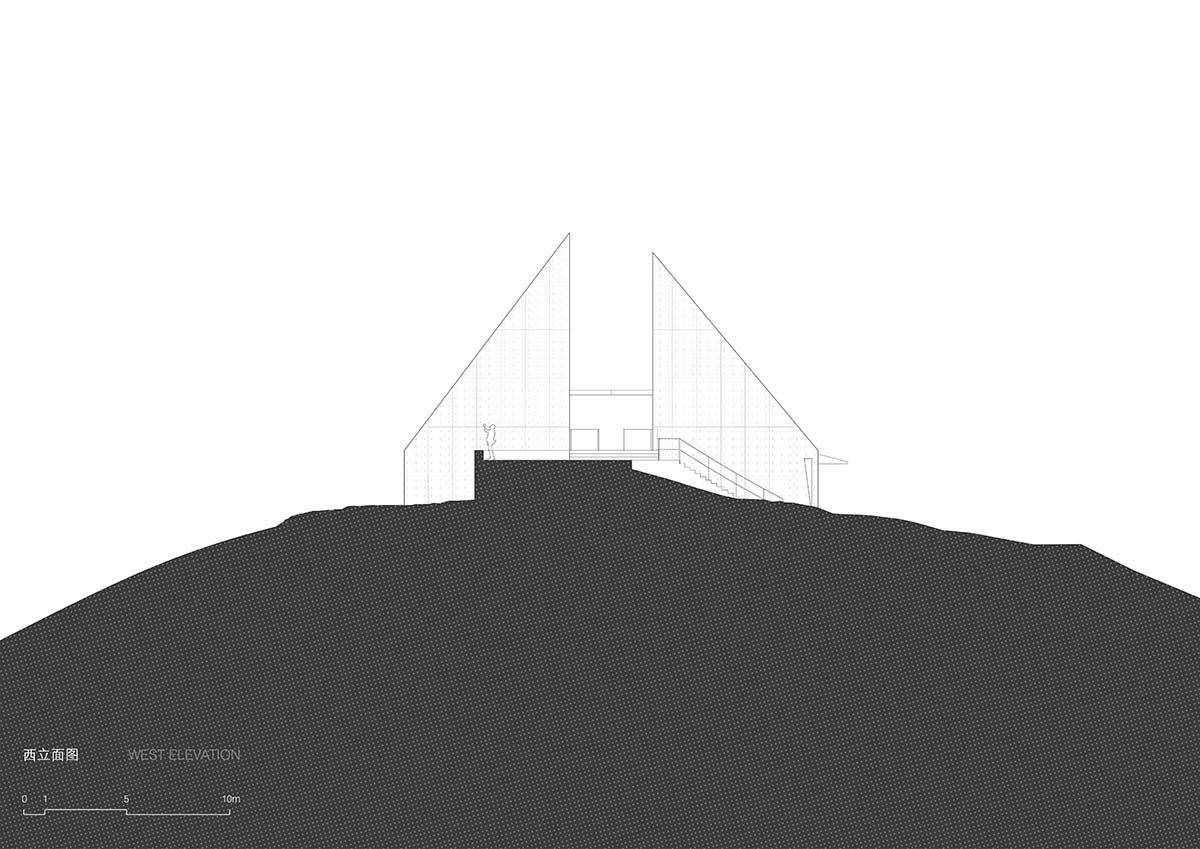
West elevation
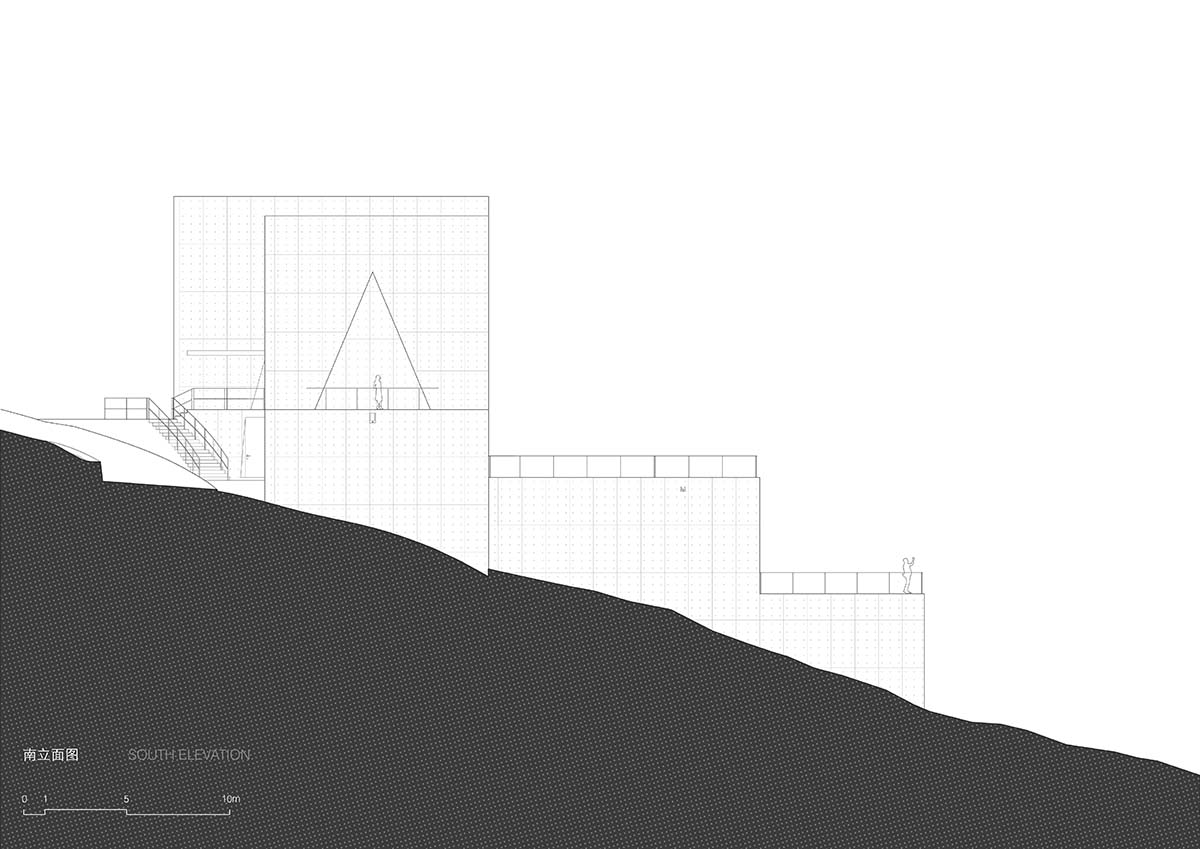
South elevation
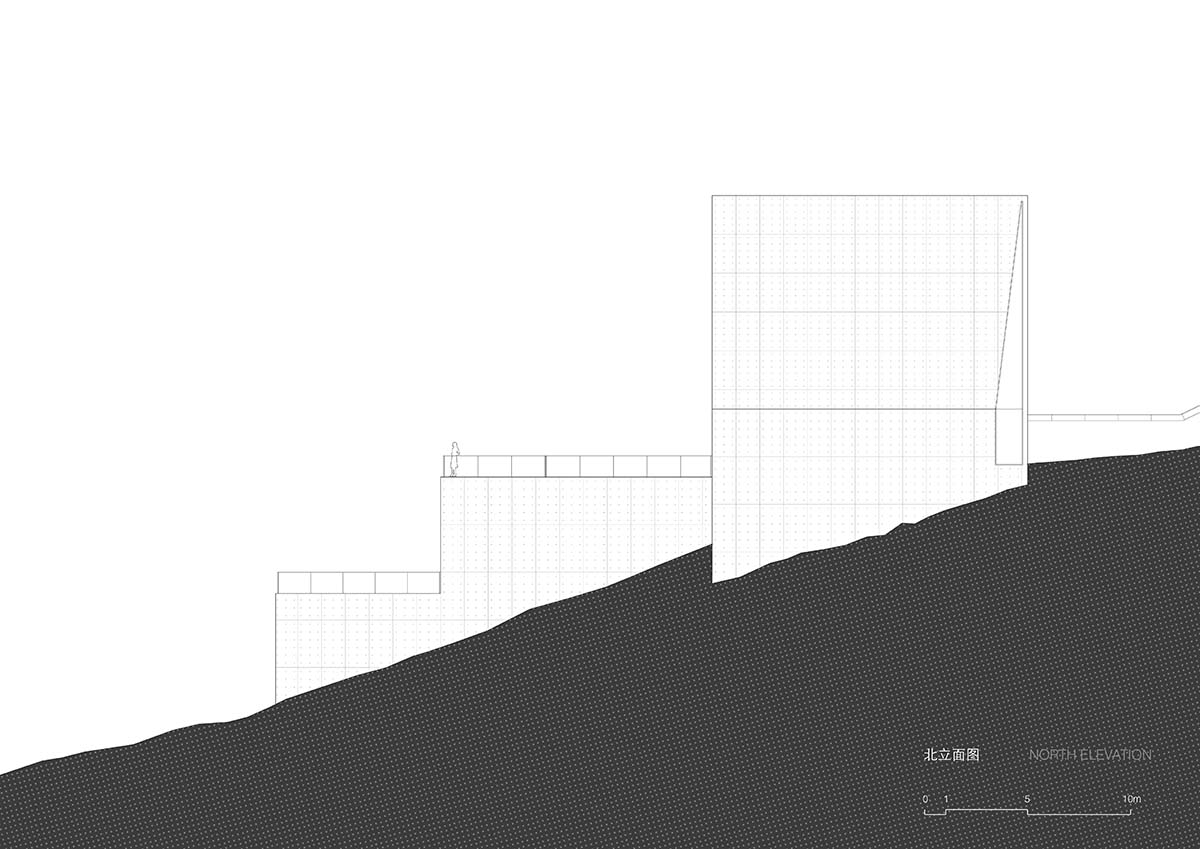
North elevation
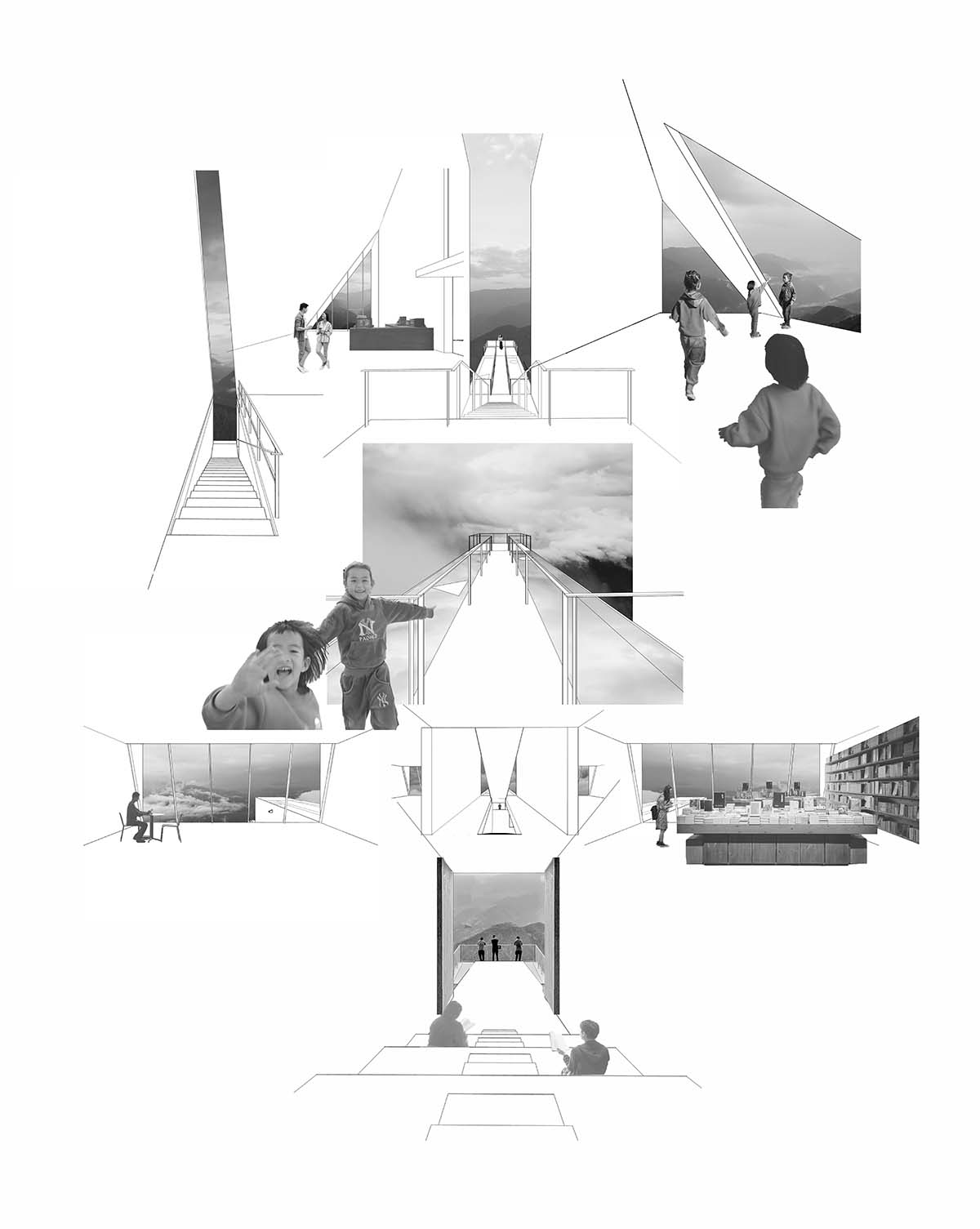
Concept collage
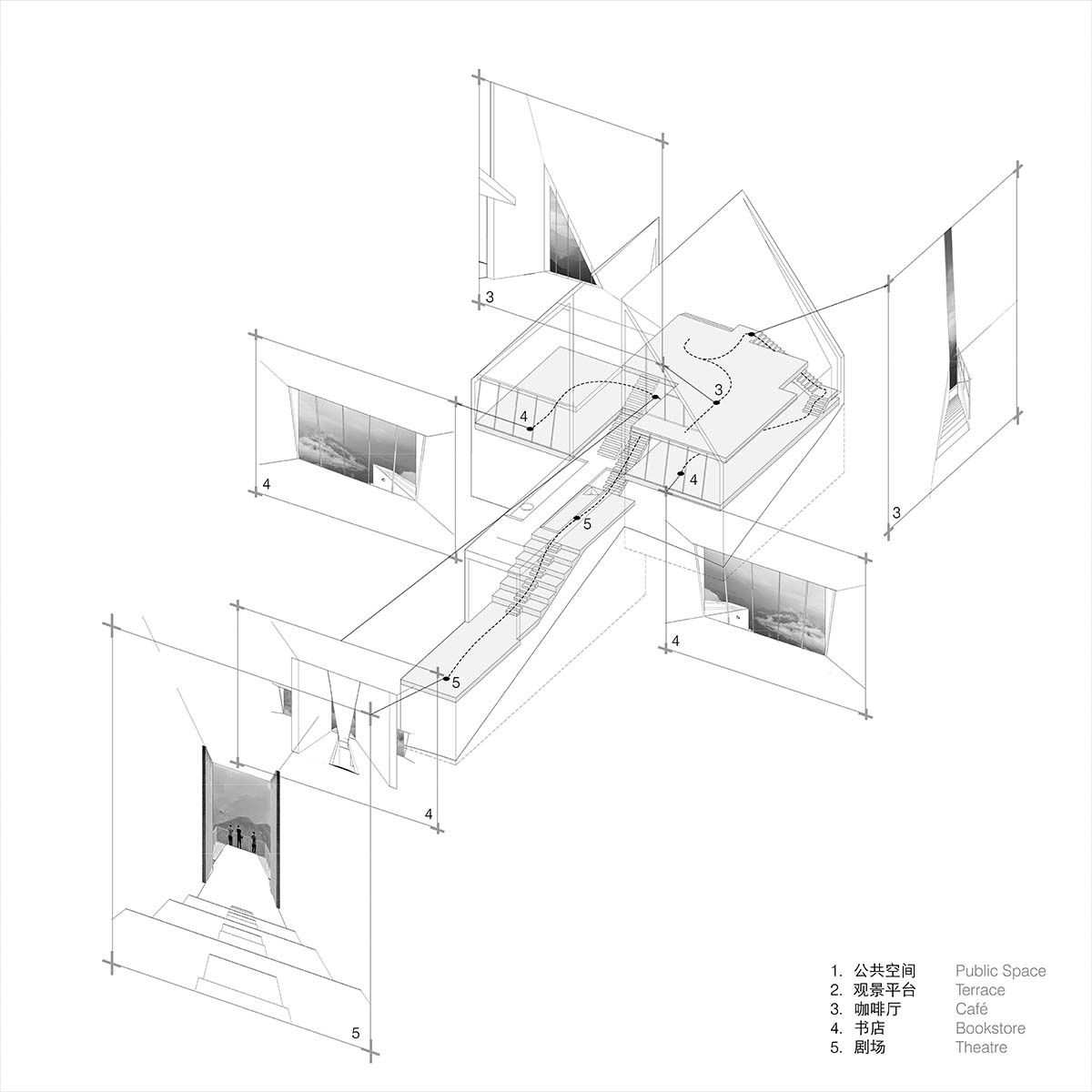
Interior circulation analysis
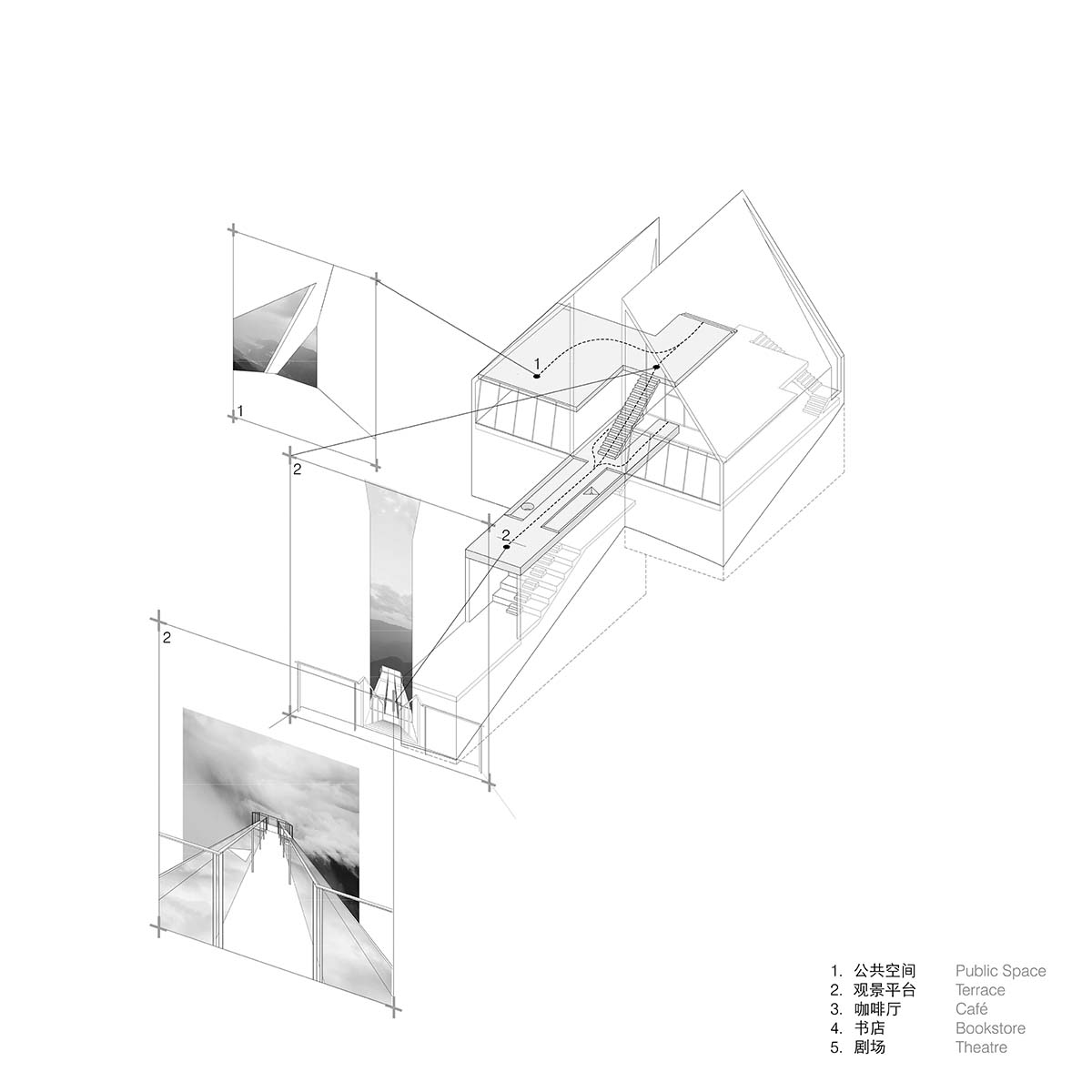
Exterior circulation analysis
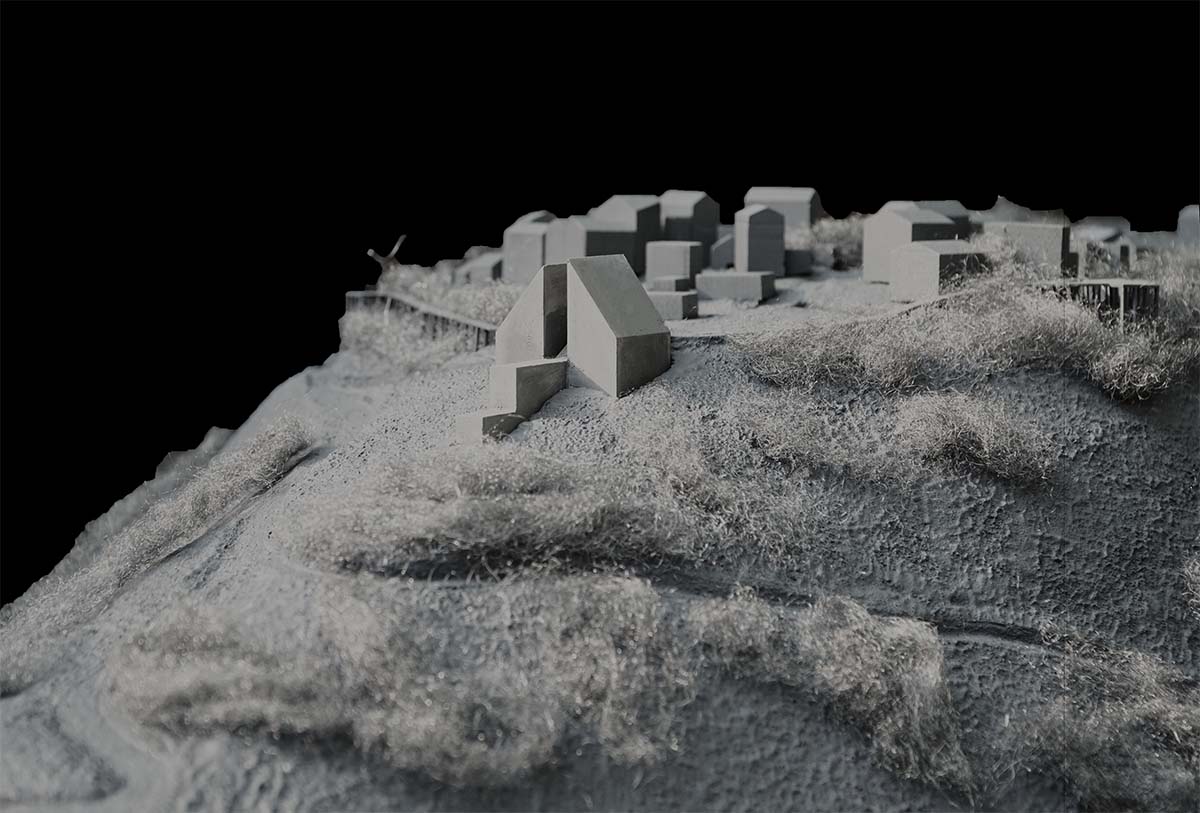
Site model
TAO designed a project that comprises a concrete-shear wall cafe and a towerhouse - a vertical volume pointing to the sky.
Project facts
Project name: Nujiang Grand Canyon Bookstore of Librairie Avant-Garde
Architects: TAO (Trace Architecture Office)
Client: Librairie Avant-Garde, Lushui Culture and Tourism Bureau
Location: Lushui, Nujiang, Yunnan
Principal architect: HUA Li | TAO (Trace Architecture Office)
Design team: HUA Li, ZHANG Peng, LIU Zhaorui, ZHANG Yuheng, TAM Yue, ZHOU Chenyue, SUN Wenhao, WANG Jiahao
Structural engineer: MA Zhigang, ZHAO Xiaolei
MEP engineer: LV Jianjun and Kcalin design group MEP engineer: SUN Jing, LI Xin
Construction team: Construction General Contractor - Lushui Construction Development Investment Co., Ltd.; Concrete Restoration - FAN Shuming, ZHU Feifei; Interior Construction Contractor - WEI Xiaogang, LIANG Jigang, TANG Zhigang, FU Kunhua, MENG Chunmei, LI Shibin
Floor area: 637m2
Design: 2022.1 - 2022.12
Construction: 2023.2 - 2024.9
All images © AOGVISION.
All drawings & models © TAO.
> via TAO
